South Korea Travel Restrictions
Traveler's COVID-19 vaccination status

Traveling from the United States to South Korea
Open for vaccinated visitors
COVID-19 testing
Not required
Not required for vaccinated visitors
Restaurants
Not required in public spaces and public transportation.
South Korea entry details and exceptions
Documents & additional resources, ready to travel, find flights to south korea, find stays in south korea, explore more countries on travel restrictions map, destinations you can travel to now, dominican republic, netherlands, philippines, puerto rico, switzerland, united arab emirates, united kingdom, know when to go.
Sign up for email alerts as countries begin to open - choose the destinations you're interested in so you're in the know.
Can I travel to South Korea from the United States?
Most visitors from the United States, regardless of vaccination status, can enter South Korea.
Can I travel to South Korea if I am vaccinated?
Fully vaccinated visitors from the United States can enter South Korea without restrictions.
Can I travel to South Korea without being vaccinated?
Unvaccinated visitors from the United States can enter South Korea without restrictions.
Do I need a COVID test to enter South Korea?
Visitors from the United States are not required to present a negative COVID-19 PCR test or antigen result upon entering South Korea.
Can I travel to South Korea without quarantine?
Travelers from the United States are not required to quarantine.
Do I need to wear a mask in South Korea?
Mask usage in South Korea is not required in public spaces and public transportation.
Are the restaurants and bars open in South Korea?
Restaurants in South Korea are open. Bars in South Korea are .
You are using an outdated browser. Upgrade your browser today or install Google Chrome Frame to better experience this site.
South Korea Traveler View
Travel health notices, vaccines and medicines, non-vaccine-preventable diseases, stay healthy and safe.
- Packing List
After Your Trip
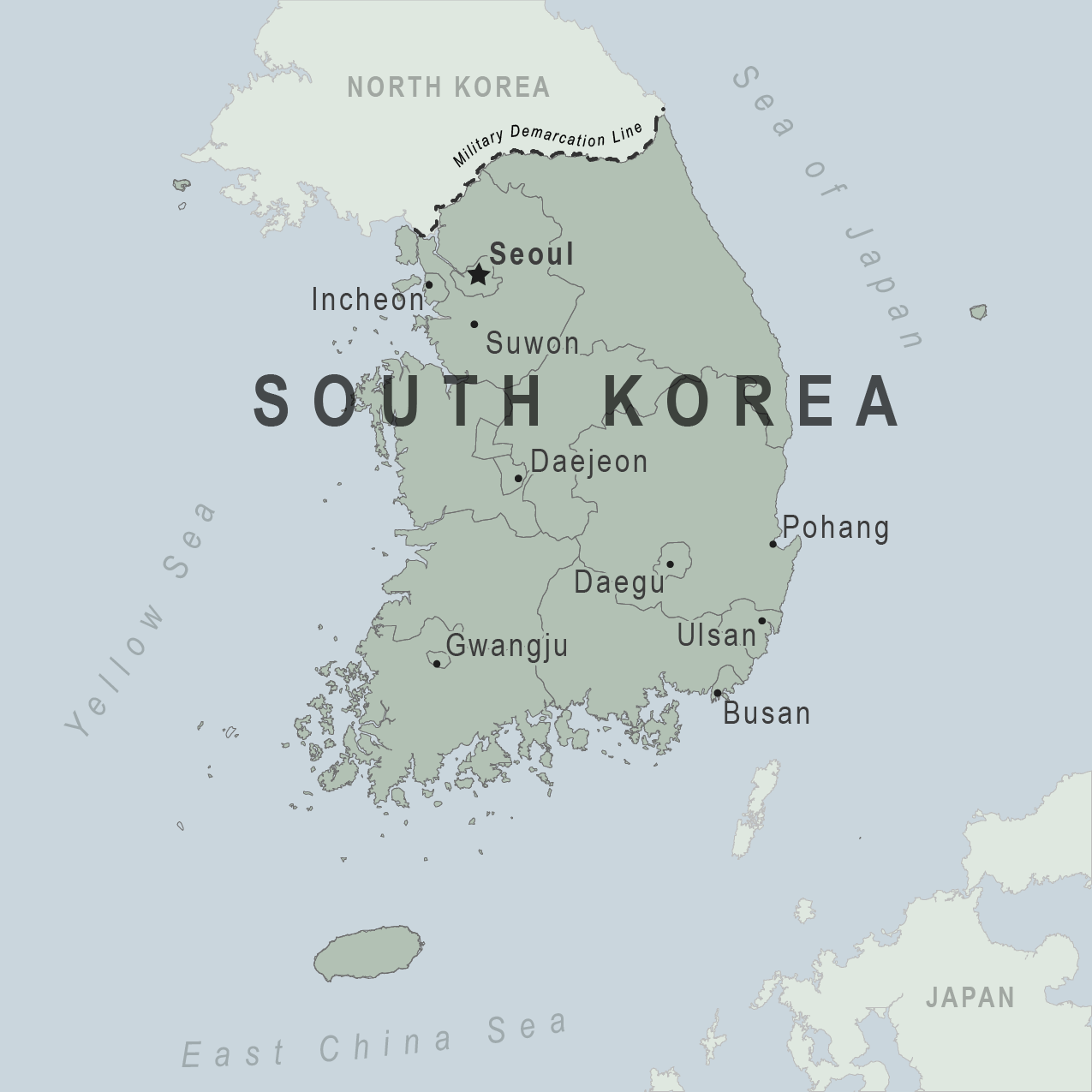
There are no notices currently in effect for South Korea.
⇧ Top
Check the vaccines and medicines list and visit your doctor at least a month before your trip to get vaccines or medicines you may need. If you or your doctor need help finding a location that provides certain vaccines or medicines, visit the Find a Clinic page.
Avoid contaminated water
Leptospirosis
How most people get sick (most common modes of transmission)
- Touching urine or other body fluids from an animal infected with leptospirosis
- Swimming or wading in urine-contaminated fresh water, or contact with urine-contaminated mud
- Drinking water or eating food contaminated with animal urine
- Avoid contaminated water and soil
- Avoid floodwater
Clinical Guidance
Airborne & droplet, avian/bird flu.
- Being around, touching, or working with infected poultry, such as visiting poultry farms or live-animal markets
- Avoid domestic and wild poultry
- Breathing in air or accidentally eating food contaminated with the urine, droppings, or saliva of infected rodents
- Bite from an infected rodent
- Less commonly, being around someone sick with hantavirus (only occurs with Andes virus)
- Avoid rodents and areas where they live
- Avoid sick people
Tuberculosis (TB)
- Breathe in TB bacteria that is in the air from an infected and contagious person coughing, speaking, or singing.
Learn actions you can take to stay healthy and safe on your trip. Vaccines cannot protect you from many diseases in South Korea, so your behaviors are important.
Eat and drink safely
Food and water standards around the world vary based on the destination. Standards may also differ within a country and risk may change depending on activity type (e.g., hiking versus business trip). You can learn more about safe food and drink choices when traveling by accessing the resources below.
- Choose Safe Food and Drinks When Traveling
- Water Treatment Options When Hiking, Camping or Traveling
- Global Water, Sanitation and Hygiene | Healthy Water
- Avoid Contaminated Water During Travel
You can also visit the Department of State Country Information Pages for additional information about food and water safety.
Prevent bug bites
Although South Korea is an industrialized country, bug bites here can still spread diseases. Just as you would in the United States, try to avoid bug bites while spending time outside or in wooded areas.
What can I do to prevent bug bites?
- Cover exposed skin by wearing long-sleeved shirts, long pants, and hats.
- Use an appropriate insect repellent (see below).
- Consider using permethrin-treated clothing and gear if spending a lot of time outside. Do not use permethrin directly on skin.
What type of insect repellent should I use?
- FOR PROTECTION AGAINST TICKS AND MOSQUITOES: Use a repellent that contains 20% or more DEET for protection that lasts up to several hours.
- Picaridin (also known as KBR 3023, Bayrepel, and icaridin)
- Oil of lemon eucalyptus (OLE) or para-menthane-diol (PMD)
- 2-undecanone
- Always use insect repellent as directed.
What should I do if I am bitten by bugs?
- Avoid scratching bug bites, and apply hydrocortisone cream or calamine lotion to reduce the itching.
- Check your entire body for ticks after outdoor activity. Be sure to remove ticks properly.
What can I do to avoid bed bugs?
Although bed bugs do not carry disease, they are an annoyance. See our information page about avoiding bug bites for some easy tips to avoid them. For more information on bed bugs, see Bed Bugs .
For more detailed information on avoiding bug bites, see Avoid Bug Bites .
Stay safe outdoors
If your travel plans in South Korea include outdoor activities, take these steps to stay safe and healthy during your trip:
- Stay alert to changing weather conditions and adjust your plans if conditions become unsafe.
- Prepare for activities by wearing the right clothes and packing protective items, such as bug spray, sunscreen, and a basic first aid kit.
- Consider learning basic first aid and CPR before travel. Bring a travel health kit with items appropriate for your activities.
- If you are outside for many hours in the heat, eat salty snacks and drink water to stay hydrated and replace salt lost through sweating.
- Protect yourself from UV radiation : use sunscreen with an SPF of at least 15, wear protective clothing, and seek shade during the hottest time of day (10 a.m.–4 p.m.).
- Be especially careful during summer months and at high elevation. Because sunlight reflects off snow, sand, and water, sun exposure may be increased during activities like skiing, swimming, and sailing.
- Very cold temperatures can be dangerous. Dress in layers and cover heads, hands, and feet properly if you are visiting a cold location.
Stay safe around water
- Swim only in designated swimming areas. Obey lifeguards and warning flags on beaches.
- Do not dive into shallow water.
- Avoid swallowing water when swimming. Untreated water can carry germs that make you sick.
- Practice safe boating—follow all boating safety laws, do not drink alcohol if you are driving a boat, and always wear a life jacket.
Keep away from animals
Most animals avoid people, but they may attack if they feel threatened, are protecting their young or territory, or if they are injured or ill. Animal bites and scratches can lead to serious diseases such as rabies.
Follow these tips to protect yourself:
- Do not touch or feed any animals you do not know.
- Do not allow animals to lick open wounds, and do not get animal saliva in your eyes or mouth.
- Avoid rodents and their urine and feces.
- Traveling pets should be supervised closely and not allowed to come in contact with local animals.
- If you wake in a room with a bat, seek medical care immediately. Bat bites may be hard to see.
All animals can pose a threat, but be extra careful around dogs, bats, monkeys, sea animals such as jellyfish, and snakes. If you are bitten or scratched by an animal, immediately:
- Wash the wound with soap and clean water.
- Go to a doctor right away.
- Tell your doctor about your injury when you get back to the United States.
Reduce your exposure to germs
Follow these tips to avoid getting sick or spreading illness to others while traveling:
- Wash your hands often, especially before eating.
- If soap and water aren’t available, clean hands with hand sanitizer (containing at least 60% alcohol).
- Don’t touch your eyes, nose, or mouth. If you need to touch your face, make sure your hands are clean.
- Cover your mouth and nose with a tissue or your sleeve (not your hands) when coughing or sneezing.
- Try to avoid contact with people who are sick.
- If you are sick, stay home or in your hotel room, unless you need medical care.
Avoid sharing body fluids
Diseases can be spread through body fluids, such as saliva, blood, vomit, and semen.
Protect yourself:
- Use latex condoms correctly.
- Do not inject drugs.
- Limit alcohol consumption. People take more risks when intoxicated.
- Do not share needles or any devices that can break the skin. That includes needles for tattoos, piercings, and acupuncture.
- If you receive medical or dental care, make sure the equipment is disinfected or sanitized.
Know how to get medical care while traveling
Plan for how you will get health care during your trip, should the need arise:
- Carry a list of local doctors and hospitals at your destination.
- Review your health insurance plan to determine what medical services it would cover during your trip. Consider purchasing travel health and medical evacuation insurance for things your regular insurance will not cover.
- Carry a card that identifies, in the local language, your blood type, chronic conditions or serious allergies, and the generic names of any medicines you take.
- Bring copies of your prescriptions for medicine and for eye glasses and contact lenses.
- Some prescription drugs may be illegal in other countries. Call South Korea’s embassy to verify that all of your prescription(s) are legal to bring with you.
- Bring all the medicines (including over-the-counter medicines) you think you might need during your trip, including extra in case of travel delays. Ask your doctor to help you get prescriptions filled early if you need to.
Many foreign hospitals and clinics are accredited by the Joint Commission International. A list of accredited facilities is available at their website ( www.jointcommissioninternational.org ).
Malaria is a risk in some parts of South Korea. If you are going to a risk area, fill your malaria prescription before you leave, and take enough with you for the entire length of your trip. Follow your doctor’s instructions for taking the pills; some need to be started before you leave.
Select safe transportation
Motor vehicle crashes are the #1 killer of healthy US citizens in foreign countries.
Be smart when you are traveling on foot.
- Use sidewalks and marked crosswalks.
- Pay attention to the traffic around you, especially in crowded areas.
- Remember, people on foot do not always have the right of way in other countries.
Riding/Driving
Choose a safe vehicle.
- Choose official taxis or public transportation, such as trains and buses.
- Make sure there are seatbelts.
- Avoid overcrowded, overloaded, top-heavy buses and minivans.
- Avoid riding on motorcycles or motorbikes, especially motorbike taxis. (Many crashes are caused by inexperienced motorbike drivers.)
- Choose newer vehicles—they may have more safety features, such as airbags, and be more reliable.
- Choose larger vehicles, which may provide more protection in crashes.
Think about the driver.
- Do not drive after drinking alcohol or ride with someone who has been drinking.
- Consider hiring a licensed, trained driver familiar with the area.
- Arrange payment before departing.
Follow basic safety tips.
- Wear a seatbelt at all times.
- Sit in the back seat of cars and taxis.
- When on motorbikes or bicycles, always wear a helmet. (Bring a helmet from home, if needed.)
- Do not use a cell phone or text while driving (illegal in many countries).
- Travel during daylight hours only, especially in rural areas.
- If you choose to drive a vehicle in South Korea, learn the local traffic laws and have the proper paperwork.
- Get any driving permits and insurance you may need. Get an International Driving Permit (IDP). Carry the IDP and a US-issued driver's license at all times.
- Check with your auto insurance policy's international coverage, and get more coverage if needed. Make sure you have liability insurance.
- Avoid using local, unscheduled aircraft.
- If possible, fly on larger planes (more than 30 seats); larger airplanes are more likely to have regular safety inspections.
- Try to schedule flights during daylight hours and in good weather.
Helpful Resources
Road Safety Overseas (Information from the US Department of State): Includes tips on driving in other countries, International Driving Permits, auto insurance, and other resources.
The Association for International Road Travel has country-specific Road Travel Reports available for most countries for a minimal fee.
Maintain personal security
Use the same common sense traveling overseas that you would at home, and always stay alert and aware of your surroundings.
Before you leave
- Research your destination(s), including local laws, customs, and culture.
- Monitor travel advisories and alerts and read travel tips from the US Department of State.
- Enroll in the Smart Traveler Enrollment Program (STEP) .
- Leave a copy of your itinerary, contact information, credit cards, and passport with someone at home.
- Pack as light as possible, and leave at home any item you could not replace.
While at your destination(s)
- Carry contact information for the nearest US embassy or consulate .
- Carry a photocopy of your passport and entry stamp; leave the actual passport securely in your hotel.
- Follow all local laws and social customs.
- Do not wear expensive clothing or jewelry.
- Always keep hotel doors locked, and store valuables in secure areas.
- If possible, choose hotel rooms between the 2nd and 6th floors.
Healthy Travel Packing List
Use the Healthy Travel Packing List for South Korea for a list of health-related items to consider packing for your trip. Talk to your doctor about which items are most important for you.
Why does CDC recommend packing these health-related items?
It’s best to be prepared to prevent and treat common illnesses and injuries. Some supplies and medicines may be difficult to find at your destination, may have different names, or may have different ingredients than what you normally use.
If you are not feeling well after your trip, you may need to see a doctor. If you need help finding a travel medicine specialist, see Find a Clinic . Be sure to tell your doctor about your travel, including where you went and what you did on your trip. Also tell your doctor if you were bitten or scratched by an animal while traveling.
If your doctor prescribed antimalarial medicine for your trip, keep taking the rest of your pills after you return home. If you stop taking your medicine too soon, you could still get sick.
Malaria is always a serious disease and may be a deadly illness. If you become ill with a fever either while traveling in a malaria-risk area or after you return home (for up to 1 year), you should seek immediate medical attention and should tell the doctor about your travel history.
For more information on what to do if you are sick after your trip, see Getting Sick after Travel .
Map Disclaimer - The boundaries and names shown and the designations used on maps do not imply the expression of any opinion whatsoever on the part of the Centers for Disease Control and Prevention concerning the legal status of any country, territory, city or area or of its authorities, or concerning the delimitation of its frontiers or boundaries. Approximate border lines for which there may not yet be full agreement are generally marked.
Other Destinations
If you need help finding travel information:
Message & data rates may apply. CDC Privacy Policy
File Formats Help:
- Adobe PDF file
- Microsoft PowerPoint file
- Microsoft Word file
- Microsoft Excel file
- Audio/Video file
- Apple Quicktime file
- RealPlayer file
- Zip Archive file
C A C (Cities Against COVID-19)
Covid-19 & vaccines in seoul.
The Seoul Metropolitan Government operates a 24-hour quarantine countermeasure from the early stages of covid-19 under the principle of " excessive surplus is better than late response " and discloses all information transparently.
Pageviews As of 07/19/2020 : 10,713,060
- Countermeasures
Information for Foreign Visitors
Covid-19 special entry procedure (as of april 1).

Information
Reinforced quarantine of international arrivals.
Seoul Metropolitan Disaster and Safety Countermeasure Headquarters Reinforced Disease Control and Prevention for International Arrivals! Instructions on Testing and Self-Quarantine All international arrivals residing in Seoul Get tested on the day of arrival at your local designated screening clinic! (Including Korean nationals, non-Korean residents, and all tourists/visitors) ※ Bring your passport and airline ticket when you get tested at the designated screening clinic!
Plans for Protection and Management of International Students for the Second Semester
Although the number of recently confirmed patients through local spreading has become stable, the number of confirmed patients coming from abroad continues to rise. Accordingly, this has called for control of preventative measures regarding international students who are awaiting the second semester of university in terms of revitalization of online classes and management of entrance times into the country.
Precautions for International Travelers
All individuals traveling to the Republic of Korea should follow these guidelines before boarding, on board, and after landing.
Mandatory quarantine instructions for all incoming travelers to Republic of Korea
Every individual who is scheduled to enter the Republic of Korea is subject to mandatory 14-day quarantine beginning on the date of entry and ending at 12:00 of the 15th day. Please check the instructions and follow the quarantine guidelines.
Seoul Provides Masks with Replaceable Filters to Foreigners in Blind Spots
Seoul Provides Masks with Replaceable Filters to Foreigners in Blind Spots Seoul announced it will distribute 100,000 masks with replaceable filters to international students who find it difficult to obtain masks and foreigners without health insurance. With the “5-day rotation system for mask distribution” in place, foreigners are required to present their alien registration card and certificate of health insurance when purchasing masks
Mask Purchase Procedures : How Can Foreigners Purchase Masks?
To resolve a shortage of masks, the Korean government has come up with a new measure called “5-day rotation system for mask distribution.” It is a policy that allows people to purchase masks on designated days based on their birth years.
Information on prevention of COVID-19 for people arriving in the Republic of Korea
Every individual who is scheduled to enter the Republic of Korea must learn the major COVID-19 symptoms checklist, guidelines on personal hygiene, and the manual to use the mobile self-diagnosis application.
TBS eFM Broadcasts Special COVID-19 Live Updates Program for Foreigners
As the number of confirmed cases of coronavirus disease 2019 (COVID-19) has exceeded 5,000 in South Korea, TBS eFM will be broadcasting a special program titled COVID-19 Live Updates for foreigners starting March 4, 2020 from 9 to 10 AM every day.
Measures to support foreign residents
The Seoul Metropolitan Government will be operating COVID-19 counseling centers as a channel to offer customized supports for foreign residents from Vietnam, Mongolia, and more. Counseling in eight languages including Chinese, Vietnamese, Filipino and Pakistani will be available from the Southwest Global Center and services in other languages will be provided in association with the […]
Measures for students from country where COVID-19 originated
In partnership with its 25 autonomous districts and 49 universities that are scheduled to admit students from China, Seoul has organized the “Joint Response Group for Students from China in Seoul” to offer omnidirectional support for students from China who are slated to enter South Korea from the point of their entrance. Eligible beneficiaries include […]

Embassy of the Republic of Korea to the Independent State of Papua New Guinea
- Ambassador’s Greetings
- Location/Contact
- Visa Issuance
- Ambassador’s Activities
- About Korea
- Font Size size up size down
South Korea Travel and Entry Restrictions 2022: COVID-19 Update
The South Korea entry restrictions determine who can enter the country and under what conditions.
Normally, foreigners must meet the South Korea visa requirements for their nationality and obtain the relevant permit before traveling.
Additionally, several South Korea COVID restrictions are now in place to prevent the spread of coronavirus.
As a result, the Republic of Korea has temporarily revised its visa policy to suspended visa exemptions for some countries.
Continue reading to learn about current South Korean travel restrictions and travel bans in place during the COVID-19 pandemic.
Can I Travel to South Korea Visa-Free During Coronavirus?
South Korea has approved 96 countries to enter the country visa-free during coronavirus.
Under normal circumstances, passport holders from over 100 countries can stay in South Korea without a visa for between 30 and 180 days , depending on their nationality.
Once the coronavirus suspension ends, all visa-exempt travelers will need to apply for the K-ETA for South Korea.
Citizens of 96 approved countries can apply.

Temporary Health Measures for South Korea
Anyone wishing to travel to the East Asian nation during the current restrictions needs to be aware of the health entry requirements for South Korea now in place.
These temporary measures are designed to protect residents and visitors in South Korea.
Unless exempt, travelers are subject to the following entry rules:
- PCR test : Travelers aged 6 and older must present a medical certificate showing a negative PCR COVID-19 test result taken within 2 days of departure. The tests accepted are LAMP, NAAT, NEAR, PCR, SDA, or TMA.
- Health Declaration Form : This contact form must be completed and presented on arrival
- Self-quarantine safety protection mobile app : All passengers traveling to South Korea must install this on their mobile device.
Health requirements are subject to change at short notice . Travelers should ensure they have all the latest information before arranging a trip to South Korea.
Do I Need a Coronavirus Vaccine to Travel to South Korea?
At the moment, a coronavirus vaccine is not required to travel to South Korea. However, vaccinated passengers are able to travel to South Korea with fewer restrictions.
Travelers should stay updated with the latest developments and ensure they have all the vaccinations needed to travel to South Korea before departure.
Is It Mandatory to Quarantine on Arrival in South Korea?
From April 1, 2022, vaccinated travelers who register with the Q-code system are eligible for quarantine exemption .
Most other passengers are subject to quarantine for 7 days on arrival. Visitors must take a PCR test on day 7.
Passengers who are required to quarantine must install the “self-quarantine safety protection mobile app” on their device before departure or upon arrival.
Vaccinated Travel Lane With Singapore
Passengers arriving from Singapore under the Vaccinated Travel Lane must present:
- a COVID-19 vaccination certificate complete with a QR code
- a confirmation of their arrival COVID-19 test
- a printed copy of medical insurance with coverage of USD 25,100 for COVID-19 related medical expenses.
Can I Transit through South Korea During COVID-19?
South Korea entry restrictions during the coronavirus pandemic also inlcude some limitations for transit passengers.
Travelers are currently only allowed to transit through South Korea for a maximum of 24 hours . They must have a confirmed connecting ticket.
Nationals of Egypt, Sudan, Syria, and Yemen are not allowed to transit.
All Passengers in transit must complete a health questionnaire on arrival.
Internal and Movement Restrictions within South Korea
Intercity transportation in South Korea is fully operational in most areas. Use of a facemask is mandatory, and eating and drinking are not permitted.
- Domestic flights : most routes have resumed with full capacity
- Trains : operational with some changes to timetables. Hygiene measures in place at stations and onboard
- Buses : inter-regional bus journeys are now permitted
- Local transport : taxis, metro, tram, and bus operational
Travelers should check the restrictions in place in the specific area of South Korea that they plan to visit. Visitors cannot board a domestic flight until completing the 7-day quarantine.
Korean Flights Affected by Coronavirus
Some airlines have canceled flights to and from South Korea, largely due to a decline in demand.
International and national routes are affected, although South Korea remains well-served by some services. Passengers with plane tickets in the coming days should check with the airline to ensure that the flight is to go ahead as scheduled.
Is It Safe to Travel to South Korea during COVID-19?
Some passengers are questioning whether it is safe to go to South Korea now. Most lockdown measures in South Korea have been lifted.
Most stores, educational facilities, stores, and other businesses are now open and operating as normal . Provided travelers take the necessary precautions and maintain a social distance, such facilities can be used safely.
There are some regional differences in the safety measures being implemented. Travelers should check the specific rules and regulations for their destination.
Health advice for travelers in South Korea
Foreigners currently in South Korea are asked to follow health advice that is being issued internationally.
- Do not travel if experiencing any symptoms
- Regularly wash hands with soap and water and use alcohol-based hand sanitizer when soap and water are unavailable.
- Cover the mouth and nose when coughing and sneezing
- Stay at least 6 feet away from other people
- Wear a mask when taking public transportation
Foreigners in South Korea who show any COVID-19 can call 1339 for 24-hour advice.
As always, foreigners should consult the latest health information for South Korea well ahead of departure.

Search Smartraveller

South Korea (Republic of Korea)
Latest update.
Exercise normal safety precautions in South Korea.
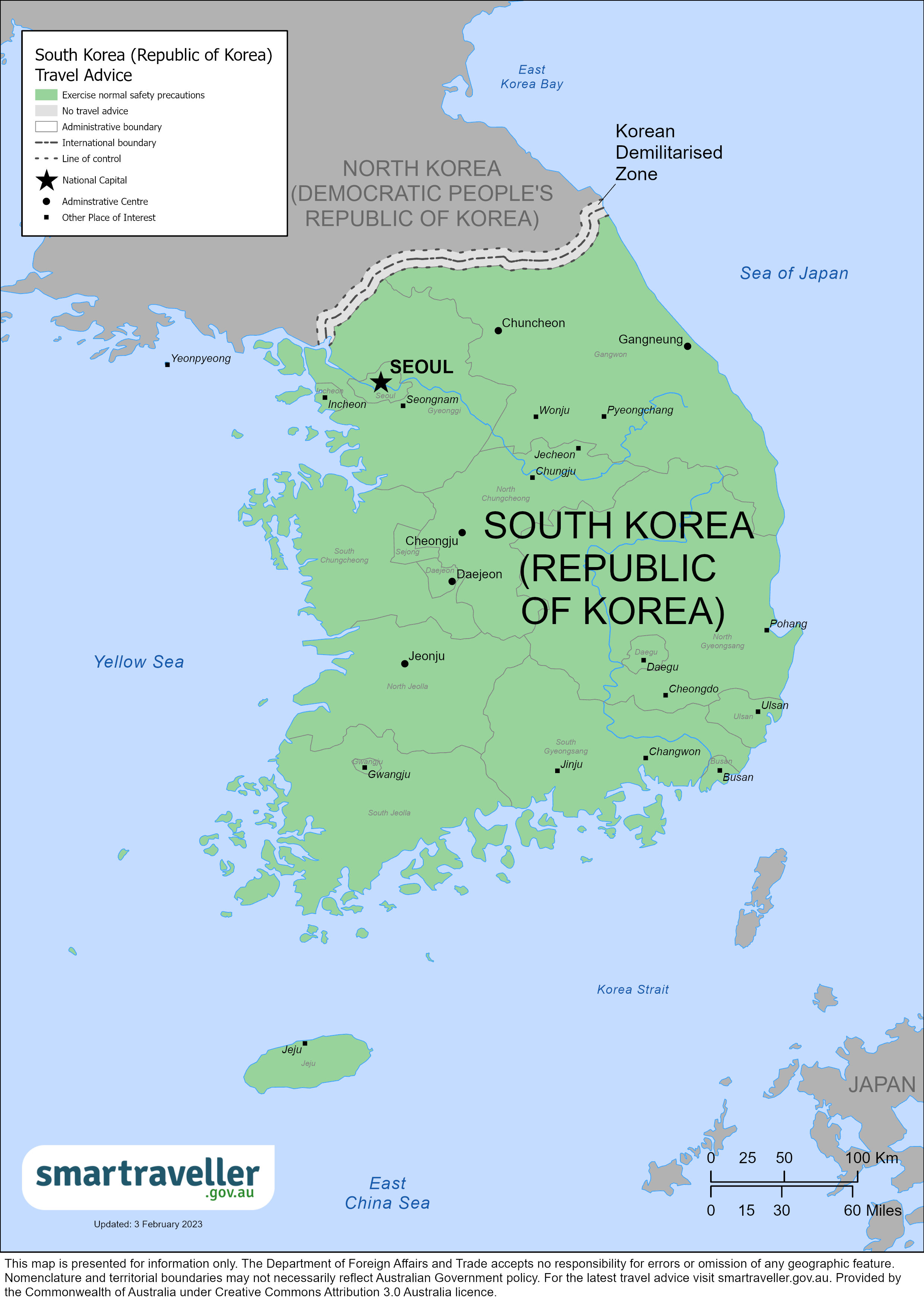
South Korea (PDF 255.07 KB)
Asia (PDF 2.29 MB)
Local emergency contacts
Fire and rescue services, medical emergencies.
Call 119 or go to the hospital.
Call 112 or go to the nearest police station.
Advice levels
- South Korea and North Korea are technically still at war, and tensions on the Peninsula can increase with little warning. North Korea regularly conducts missile launches and other provocations. Monitor developments. Consider downloading the South Korean Government's 'Emergency Ready' app.
- Civil emergency drills are held a few times a year for fire, earthquakes, other disasters and civil defence training. Nationwide exercises take place at least twice a year. Regional drills may also be run a few times a year.
- Large-scale public gatherings and protests are common, particularly in Seoul. Protests are generally peaceful and policed but can sometimes turn violent.
- Avoid large public gatherings if possible, and exercise caution in crowded areas. South Korea remains safe for most travellers, with a relatively low crime rate. However, petty crimes happen, especially in major cities such as Seoul and Busan. Watch your belongings.
- Sexual assault and harassment, drink spiking and other violent crimes occur, particularly around bars and nightlife areas, such as Itaewon and Hongdae. Don't accept food, drink, gum or cigarettes from strangers. Remain vigilant, take care when walking at night, and travel in groups if possible.
- The rainy season is from late June to late August. Typhoons can happen in August and September. Heavy rainfall during summer can cause flooding, landslides, and damage to housing and infrastructure. Identify your local shelter (identified by the word 대피소). Follow the advice of local officials.
- Tsunamis caused by earthquakes in the surrounding region are a risk. Know the tsunami warning signs and move to high ground straight away. Don't wait for official alerts, warnings or sirens.
Full travel advice: Safety
- There are high levels of pollution, particularly between March to May. During this time, strong winds from Mongolia and China also carry yellow dust to the Korean Peninsula. This can cause eye, nose, mouth, and throat irritations. Get medical advice if you have heart or breathing problems.
- The standard of medical facilities in South Korea is usually good, but few staff speak English. You'll probably have to pay up-front. Ensure your travel insurance covers all medical costs.
- South Korea is popular for medical tourism. If you're travelling for a procedure, research and choose your medical service providers carefully. Don’t use discount or uncertified providers. Ensure your travel insurance covers complications from surgery.
Full travel advice: Health
- Using shared electric kickboards (electric scooters) in South Korea is increasing. A driver's licence is required, and you must wear a helmet while riding. Make sure you have adequate health and liability insurance before riding.
- It's illegal to work or volunteer in South Korea if it's not specified in your visa. If you plan to work, arrange a work visa through a South Korean embassy or consulate before you travel.
- Disputes over working and living conditions for Australians teaching English in South Korea are common. Research your employer and employment agency. Get legal advice before you sign a contract.
- Be careful when taking photos and videos. It's illegal to photograph military zones, assets, personnel, and official buildings.
- South Korea recognises dual nationality only in certain circumstances. If you're a male Australian-South Korean dual national, you may have to do military service before you're permitted to depart. This could happen even if you travel to South Korea on your Australian passport. Get advice through a South Korean embassy or consulate before travelling.
Full travel advice: Local laws
- Australian passport holders can visit South Korea as tourists for stays of up to 90 days without applying for a K-ETA (or visa waiver) until December 2024. Previously approved K-ETA applications will remain valid up to the granted expiry date. Visit the official K-ETA website for more information.
- You may be required to register on the Korean Q-code system prior to arrival or to complete a health questionnaire on arrival. Further information on 'Quarantine Inspection Required Areas' is available on the ' Notices ' page. Check with the South Korean embassy or consulate for the latest requirements for Australians.
- Entry and exit conditions can change at short notice. You should contact the nearest South Korean embassy or consulate for the latest details.
Full travel advice: Travel
Local contacts
- The Consular Services Charter details what we can and can't do to help you overseas.
- For consular help, contact the Australian Embassy in Seoul .
- To stay up to date with local information, follow the Embassy’s social media accounts.
Full travel advice: Local contacts
Full advice
Regional threats.
South Korea and North Korea are technically still at war, and peace is maintained under a truce agreed at the practical end of the Korean War in 1953. Tensions have on the Korean Peninsula can increase with little warning.
The Korean Peninsula is divided by a demilitarised zone (DMZ) separating:
- North Korea or the Democratic People's Republic of Korea
- South Korea or the Republic of Korea
North Korea regularly takes provocative actions, including conducting ballistic missile launches and underground nuclear tests. Low-level military clashes have occurred.
In the event of such threats in the region:
- monitor developments
- take official warnings seriously
- follow the instructions of local authorities
The South Korean Government has also released a free smartphone ' Emergency Ready ' app. The app has information on local emergency services, including:
- shelter locations
The app is available for both Apple and Android devices.
Authorities control access to Yeonpyeong Island and other islands near the Northern Limit Line. This is due to their proximity to a sea boundary disputed by North Korea.
More information:
- Planning for emergencies
Public Safety
Parts of Seoul, particularly Itaewon and Hongdae, and on public transport, can become extremely crowded. In October 2022, more than 150 people were killed in a crowd crush during Halloween festivities in Itaewon. Exercise caution in crowded areas.
Civil Emergency Drills
Nationwide civil emergency drills are held regularly throughout the year, with regional or local drills also undertaken.
Depending on the drill, sirens may sound, transport may stop, and authorities may ask people to take shelter in subway stations or basements.
Follow the advice of local authorities. The South Korean Government has released a free smartphone 'Emergency Ready' app. The app has information on civil defence drills, including shelters and safety guides.
- Civil Defence Drills
Civil unrest and political tension
Public protests and events that draw large groups of people are common and can sometimes turn violent. Avoid large public gatherings, if possible, and exercise caution in crowded areas.
To protect yourself:
- avoid protests and demonstrations
- monitor the media for information
Be prepared to change your travel plans in case of disruptions.
- Demonstrations and civil unrest
For most travellers, South Korea is safe and has a relatively low crime rate. However, petty crime happens, especially in major cities such as Seoul and Busan.
Sexual assault, drink spiking, and other violent crimes occur, particularly around bars and nightlife areas, such as Itaewon and Hongdae.
To protect yourself from crime:
- keep your belongings close
- don't accept drinks, food, gum or cigarettes from strangers
- don't leave food or drinks unattended
- remain vigilant and take care when walking at night
- travel in groups if possible
Local authorities may not always respond adequately or consistently to reports of sexual violence and harassment. If you're sexually assaulted, you should report it immediately to the local authorities and the Australian Embassy in Seoul.
In general, sex-related crimes are not punished as harshly in South Korea as in Australia, and the prosecution process can be challenging for victims.
You can report crimes, including sexual assault, to the police by calling 112. This is a 24/7 service with English interpreters available.
- Partying safely
Cyber security
You may be at risk of cyber-based threats during overseas travel to any country. Digital identity theft is a growing concern. Your devices and personal data can be compromised, especially if you’re connecting to Wi-Fi, using or connecting to shared or public computers or to Bluetooth.
Social media can also be risky in destinations where there are social or political tensions, or laws that may seem unreasonable by Australian standards. Travellers have been arrested for things they have said on social media. Don't comment on local or political events on your social media.
More information:
Cyber security when travelling overseas
Terrorism is a threat worldwide. Although there is no recent history of terrorism in South Korea, attacks can't be ruled out.
You should be aware of the global risk of indiscriminate terrorist attacks, which could be in public areas, including those visited by foreigners.
- Terrorist threats
Climate and natural disasters
South Korea experiences natural disasters and severe weather , including:
- flooding and landslides
- earthquakes
Get familiar with the advice of local authorities on preparing for a natural disaster or other emergency.
If there's a natural disaster:
- know your accommodation's evacuation plans
- secure your passport in a safe, waterproof location
- follow the advice of local authorities
- closely monitor the media
- keep in touch with friends and family
Register with the Global Disaster Alert and Coordination System to receive alerts on major disasters.
Typhoons and severe weather
The monsoon season is usually from late June to late August.
Excessive rainfall during summer can cause severe flooding and landslides and damage to housing and infrastructure. Flash flooding can occur.
The typhoon season is usually during the period August to September.
If there's a typhoon approaching, stay inside. The direction and strength of typhoons can change with little warning.
Identify your closest local shelter if required and follow the directions of local authorities.
Severe weather may also affect:
- access to ports
- road travel and transport
- essential services, such as water and power
If there's a typhoon or severe storm:
- exercise caution
- stay away from affected areas
- you may get stuck in the area
- flights could be delayed or suspended
Monitor weather forecasts and follow instructions of local authorities.
Check with tour operators before travelling to affected areas.
Contact your airline for the latest flight information.
- Korean Meteorological Administration
- Severe Weather Information Centre
- Special weather report – KMA
- Real-time disaster alert – National Disaster and Safety Portal
Earthquakes and tsunamis
Earthquake activity happens on the Korean Peninsula, though less than in Japan and other countries in the region.
Tsunamis are also a risk.
Large earthquakes, which predominantly tend to occur in neighbouring countries, can cause destructive tsunamis that may affect the Korean Peninsula. If you are in a coastal region after a major earthquake, move to higher ground immediately.
- Pacific Warning Center
- Korea Meteorological Administration
Travel insurance
Get comprehensive travel insurance before you leave.
Your policy needs to cover all overseas medical costs, including medical evacuation. The Australian Government won't pay for these costs.
If you can't afford travel insurance, you can't afford to travel. This applies to everyone, no matter how healthy and fit you are.
If you're not insured, you may have to pay many thousands of dollars up-front for medical care.
- what activities and care your policy covers
- that your insurance covers you for the whole time you'll be away
Physical and mental health
Consider your physical and mental health before you travel, especially if you have an existing medical condition. Treatment for mental health is not widely available in South Korea and is not comparable to services in Australia. There are very few hospitals that have mental health or psychiatric wards attached, and of those available, many will not accept foreigners.
Admission to a mental health or psychiatric ward usually requires proof of a prior mental health diagnosis. Many facilities are reluctant to admit foreigners. For involuntary admissions, 2 family members present in Korea will be required to sign consent.
See your doctor or travel clinic to:
- have a basic health check-up
- ask if your travel plans may affect your health
- plan any vaccinations you need
Do this at least 8 weeks before you leave.
If you have immediate concerns for your welfare, or the welfare of another Australian, call the 24-hour Consular Emergency Centre on +61 2 6261 3305 or contact your nearest Australian Embassy, High Commission or Consulate to discuss counselling hotlines and services available in your location.
- General health advice
- Healthy holiday tips (Healthdirect Australia)
Medications
If you plan to travel with medication, check if it's legal in South Korea . Not all medications available over the counter or by prescription in Australia are available in Korean pharmacies. Some medications may even be considered illegal or a controlled substance in South Korea, even if prescribed by an Australian doctor.
Before you travel:
- contact the South Korean Ministry of Food and Drug Safety or email [email protected] to check whether your medication is a controlled or illegal substance in South Korea
- Check with the Korea Customs Service for information on restricted or prohibited items that may not be brought into the country
- ask your doctor about alternative medicines
You may need to apply for a 'bring in' permit. When applying, provide the generic name of the medication, as the brand name in South Korea may be different in Australia.
It may take authorities more than 2 weeks to process your application.
Take enough medications for your trip.
Carry a copy of your prescription or a letter from your doctor stating:
- what the medication is
- your required dosage
- that it's for personal use
Health risks
Insect-borne diseases.
Malaria is a risk in:
- the demilitarised zone at the border between South and North Korea
- rural areas in the northern parts of Gyeonggi and Gangwon provinces
Japanese encephalitis also occurs throughout the Korean countryside.
To protect yourself from disease:
- make sure your accommodation is insect-proof
- use insect repellent
- wear long, loose, light-coloured clothing
- get vaccinated against Japanese encephalitis before you travel
- consider taking medicine to prevent malaria
Other health risks
Waterborne, foodborne, and other infectious diseases occur, including:
- tuberculosis
- COVID-19
If you test positive for COVID-19 while in South Korea, you may need to follow local isolation guidelines.
Use normal hygiene precautions, including:
- careful and frequent hand washing
- boil tap water before drinking or cooking
- avoid uncooked and undercooked food
- seek medical advice if you have a fever or are suffering from diarrhoea
Hand, foot and mouth disease
Hand, foot and mouth disease (HFMD) is common.
Serious outbreaks sometimes occur.
Outbreaks usually start in March and peak in May but can continue until October each year.
The disease mostly affects children aged under 10 years. Adult cases, especially in young adults, are not unusual.
When outside major cities:
- drink boiled water, filtered water or bottled water with sealed lids
- avoid ice cubes
- avoid uncooked and undercooked food, such as salads
Get medical advice if you have a fever or diarrhoea.
Yellow dust
Yellow dust is carried to the Korean Peninsula by strong winds from Mongolia and China from March to May. High levels of airborne pollution occur during this time.
The dust can:
- cause eye, nose, mouth and throat irritations
- make breathing and heart problems worse
If you're concerned about the effects of dust, speak to your doctor before leaving Australia.
Get medical advice if you have allergies or respiratory difficulties.
Medical facilities
The standard of medical facilities in South Korea is usually good, but few staff speak English.
Medical services can be expensive. Hospitals usually require an up-front deposit or confirmation of insurance before they'll treat you.
You can request ambulance and emergency medical assistance by calling 119. This is a 24/7 service with English interpreters available.
- Medical tourism
South Korea is a popular destination for medical tourism.
- research and choose your medical service providers carefully
- avoid discounted or uncertified medical service providers
Check whether your travel insurance covers you if things go wrong with your surgery. Most insurers don't.
You're subject to all local laws and penalties, including those that may appear harsh by Australian standards. Research local laws before travelling.
The use of electric kickboard (electric scooter) rentals in South Korea is increasing. You must be 16 years or older to ride an electric scooter. Riders must have a driver's licence, wear a helmet, and use bicycle paths or, if there are no bicycle paths, car lanes while adhering to road traffic rules. Fines can apply for riding while inebriated, failing to wear helmets, or exceeding passenger limits.
If you're arrested or jailed, the Australian Government will do what it can to help you under our Consular Services Charter . But we can't get you out of trouble or out of jail.
Don't carry or consume illegal drugs.
Penalties for possession, use or trafficking of illegal drugs include:
- long jail sentences
- heavy fines
- deportation
- Carrying or using drugs
It's illegal to work in South Korea if it's not specified in your visa. This includes paid and unpaid work.
Authorities have fined, detained and deported Australians for breaching their visa conditions.
It's difficult to change your visa type once you're in South Korea.
If you plan to work, arrange a work visa through a South Korean embassy or consulate before you travel.
Disputes over expected working and living conditions for Australians teaching English in South Korea are common.
Some Australians planning to teach English have faced penalties after they or their employment agent gave false documents to Korean immigration authorities.
If you're employed without the right visa, your options will be limited under Korean law.
If you're considering teaching English in South Korea:
- research your employer and employment agent
- consider getting legal advice before you sign a contract
- make sure your visa application is truthful and accurate
Serious crimes, such as murder, may attract the death penalty.
It's illegal to take photos of and around:
- military zones, assets or personnel
- official buildings
South Korea has strict anti-corruption laws for public officials. Public officials and their spouses can't accept meals, gifts or other benefits above set limits.
'Public officials' include:
- journalists
- employees of government-owned or funded companies
Get legal advice to make sure you don't breach these laws.
If you're involved in a commercial or legal dispute, authorities can stop you from leaving until the dispute is resolved.
Australian laws
Some Australian criminal laws still apply when you're overseas. If you break these laws, you may face prosecution in Australia.
- Staying within the law
Dual citizenship
South Korea recognises dual nationality only in certain circumstances.
It's possible that by applying for Australian Citizenship by Descent or by Conferral, you may lose your Korean citizenship.
There are some differences between the Australian and Korean citizenship requirements. This has caused some difficulties, particularly for children born in South Korea to South Korean and Australian parents. Expectant parents should make themselves aware of these differences and contact the Australian and South Korean immigration authorities in advance of giving birth.
If you've been arrested or detained and have Korean citizenship, we may only be able to provide limited consular help.
If you were born in South Korea or have Korean citizenship, you will continue to be a Korean citizen unless you:
- formally renounce it; and
- remove your name from the Korean family register
Military service is compulsory for male citizens of South Korea, including dual nationals.
The South Korean Government may require you to undertake military service if you:
- are male; and
- are listed on the Korean family register
This is the case even if you have travelled to South Korea on your Australian passport.
The Government may not allow you to renounce your Korean nationality or leave the country until you either:
- complete your military service, or
- receive a special exemption from serving
If you're an Australian-South Korean dual national, get advice from a South Korean embassy or consulate before you travel.
Contact the Korean Immigration Service for information on Korea’s law on dual citizenship.
- Dual nationals
Visas and border measures
Every country or territory decides who can enter or leave through its borders. For specific information about the evidence you'll need to enter a foreign destination, check with the nearest embassy, consulate or immigration department of the destination you're entering.
Australian passport holders can visit South Korea as tourists for stays of up to 90 days without applying for a K-ETA (or visa waiver) until 31 December 2024. Previously approved K-ETA applications will remain valid up to the granted expiry date. Visit the official K-ETA website for more information.
Long-term visa holders residing in South Korea must apply for a re-entry permit before leaving South Korea. If you leave South Korea without a re-entry permit, your Alien Registration Card may be cancelled and you'll need to apply for a new long-term visa to enter. If you hold an A1, A2, A3 or F4 visa, you're exempt from requiring a re-entry permit.
To apply for a re-entry permit, visit a local immigration office, including at an airport or seaport. If you intend to apply at an airport immigration office on your way out of South Korea, ensure you allow sufficient time to complete the required formalities.
Further information about re-entry permits and medical examination requirements is available from the Korean Ministry of Justice .
Entry and exit conditions can change at short notice. Contact the nearest South Korean embassy or consulate for details about visas, currency, customs and quarantine rules.
Border measures
If you're travelling to South Korea, you may be required to register your information on the Korean Q-code registration system to receive a generated QR code for your arrival or complete a health questionnaire on arrival if you haven't registered online.
You should also check the Korean Q-code registration system prior to travelling to South Korea, as countries listed as 'Quarantine Inspection Required Areas' may change without notice. Further information on 'Quarantine Inspection Required Areas' is available on the ' Notices ' page.
Arriving passengers could be screened for high body temperature and as necessary might be subject to further health questions.
Contact the South Korean embassy or consulate in Australia for more information when planning your travel and to confirm requirements.
Other formalities
You'll be fingerprinted when you arrive.
Passengers arriving at South Korean airports from particular countries could be screened for infectious diseases, including:
- Middle East respiratory syndrome coronavirus (MERS-CoV)
Extra quarantine checks are in place for flights from high-risk areas.
Korean Government Agencies
- Korea Disease Control & Prevention Agency (KDCA)
- Ministry of Health and Welfare
- Ministry of Employment and Labor
- Ministry of Education
- Ministry of Gender Equality and Family
- Ministry of the Interior and Safety
- Ministry of Economy and Finance
Some countries won't let you enter unless your passport is valid for 6 months after you plan to leave that country. This can apply even if you're just transiting or stopping over.
Some foreign governments and airlines apply the rule inconsistently. Travellers can receive conflicting advice from different sources.
You can end up stranded if your passport is not valid for more than 6 months.
The Australian Government does not set these rules. Check your passport's expiry date before you travel. If you're not sure it'll be valid for long enough, consider getting a new passport .
Lost or stolen passport
Your passport is a valuable document. It's attractive to people who may try to use your identity to commit crimes.
Some people may try to trick you into giving them your passport. Always keep it in a safe place.
If your passport is lost or stolen, tell the Australian Government as soon as possible:
- In Australia, contact the Australian Passport Information Service .
- If you're overseas, contact the nearest Australian embassy or consulate.
Passport with ‘X’ gender identifier
Although Australian passports comply with international standards for sex and gender, we can’t guarantee that a passport showing 'X' in the sex field will be accepted for entry or transit by another country. Contact the nearest embassy, high commission or consulate of your destination before you arrive at the border to confirm if authorities will accept passports with 'X' gender markers.
- LGBTQIA+ travellers
The local currency is the Korean Won (KRW).
You can change Australian dollars for KRW at local banks and money changers.
On arrival, declare all means of international payment , including KRW notes, cashier's checks, or foreign currency over $US10,000 or equivalent.
ATMs are available in cities and larger towns, but these might not accept some foreign debit cards.
Credit cards are usually accepted in hotels, restaurants, shops, and taxis, particularly in cities and larger towns.
Be aware of card skimming. See Safety
Local travel
Driving permit.
To drive, you'll need either:
- a valid local licence, or
- an International Driver's Permit (IDP) and a valid Australian driver's licence
Get your IDP before your leave Australia.
You need a Korean driver's licence to drive if you intend to stay in South Korea for 90 days or more.
You will need a certified copy of your Australian licence to apply for a Korean driver's licence.
When issuing you with a Korean driver's licence, the local authorities will normally keep your Australian driver's licence. They will return your Australian licence to you in exchange for your Korean driver's licence before you depart Korea.
- Safe Driving - KOROAD
Road travel
South Korea has a high rate of traffic deaths, especially for pedestrians. While the South Korean police have been more strictly reinforcing traffic rules, in recent years, speeding, running red lights, and other risky behaviour are still common, especially by buses, taxis, and motorcyclists.
If you're involved in an accident, whether or not you're at fault, you could face criminal charges. You may need to pay compensation to the injured person.
The blood alcohol limit for drivers is 0.03%. Heavy penalties apply for exceeding the limit. Don't drink and drive.
If you're walking:
- look out for motorcyclists, even on footpaths and pedestrian crossings
- don't expect traffic to stop at pedestrian crossings
- check carefully before stepping onto the road
Before travelling by road, learn local road rules and practices.
- Driving or riding
Motorcycles
Check if your travel insurance policy covers you when riding a motorbike. Most policies won't cover you if you don't follow local laws or wear a helmet.
Always wear a helmet.
There are restrictions on riding motorcycles on highways and other major roads.
Use only authorised taxis, preferably those arranged through your hotel.
Always insist the driver uses the meter. Most taxis accept credit cards.
Rideshare apps are also available in South Korea.
International taxi services are available and may have English-speaking drivers.
Public transport
Public transportation (including buses and metropolitan subway networks) in and between major urban areas is good.
Most major transportation systems have signs and make announcements in English.
- Visit Korea
- Transport and getting around safely
Rail travel
South Korea has a large high-speed rail network (KTX).
Stations are usually located in major urban areas. They have signs in English.
They're often linked to local taxi or public transport networks.
Ferry services operate between most large coastal cities and other domestic and international ports.
Busan, Incheon, and Jeju Island are regular stopover locations for cruise ships.
- Going on a cruise
- Travelling by boat
Some airlines and travel providers don't allow you to pay for flights online within South Korea with a foreign credit card.
DFAT doesn't provide information on the safety of individual commercial airlines or flight paths.
Check South Korea's air safety profile with the Aviation Safety Network.

Emergencies
Depending on what you need, contact your:
- family and friends
- travel agent
- insurance provider
To report a crime, call 112 or go to the nearest police station. This is a 24/7 service with English interpreters available.
Always get a police report when you report a crime.
If you have lost any property, visit the Lost112 website for more information.
- Korea Disease Control & Prevention (KDCA)
Consular contacts
Read the Consular Services Charter for what the Australian Government can and can't do to help you overseas.
For consular help, contact the Australian Embassy in Seoul.
Australian Embassy, Seoul
19th Floor, Kyobo Building 1, Jong-ro Jongno-gu Seoul 03154, Republic of Korea Phone: (+82 2) 2003 0100 Fax: (+82 2) 2003 0196 Website: southkorea.embassy.gov.au Facebook: Australia in the Republic of Korea Instagram: @AusEmbKor
Check the Embassy website for details about opening hours and any temporary closures.
24-hour Consular Emergency Centre
In a consular emergency, if you can't contact an embassy, call the 24-hour Consular Emergency Centre on:
- +61 2 6261 3305 from overseas
- 1300 555 135 in Australia

Travelling to South Korea?
Sign up to get the latest travel advice updates..
Be the first to know official government advice when travelling.
Security Alert May 17, 2024
Worldwide caution.
- Travel Advisories |
- Contact Us |
- MyTravelGov |
Find U.S. Embassies & Consulates
Travel.state.gov, congressional liaison, special issuance agency, u.s. passports, international travel, intercountry adoption, international parental child abduction, records and authentications, popular links, travel advisories, mytravelgov, stay connected, legal resources, legal information, info for u.s. law enforcement, replace or certify documents.
Before You Go
Learn About Your Destination
While Abroad
Emergencies
Share this page:
South Korea
Travel Advisory July 24, 2023
South korea - level 1: exercise normal precautions.
Reissued with obsolete COVID-19 page links removed.
Exercise normal precautions in South Korea.
Read the country information page for additional information on travel to South Korea.
If you decide to travel to South Korea:
- Enroll in the Smart Traveler Enrollment Program (STEP) to receive Alerts and make it easier to locate you in an emergency.
- Follow the Department of State on Facebook and Twitter .
- Review the Country Security Report for South Korea.
- Visit the CDC page for the latest Travel Health Information related to your travel.
- Prepare a contingency plan for emergency situations. Review the Traveler’s Checklist .
Embassy Messages
View Alerts and Messages Archive
Quick Facts
Must be valid at time of entry
One page per stamp
No – From April 1, 2023, to December 31, 2024, the Korean Electronic Travel Authorization (K-ETA) is not required for US citizens traveling for short-term business or tourism purposes.
Embassies and Consulates
U.s. embassy seoul.
188 Sejong-daero, Jongno-gu, Seoul 03141, Korea Telephone: +(82) (2) 397-4114 (from within Korea, dial 02-397-4114) DSN:721-4114 Fax: +(82) (2) 397-4101 Email: [email protected]
U.S. Consulate in Busan
Lotte Gold Rose Building #612, Jungang-daero 993, Jin-gu Busan 47209, Korea Telephone: (+82) 51-863-0731 Email: [email protected]
The Embassy and Consulate are closed on weekends and on American and Korean holidays . Emergency After-Hours Telephone: +82 (2) 397-4114.
Destination Description
Learn about the U.S. relationship to countries around the world.
Entry, Exit and Visa Requirements
- You must have a valid U.S. passport to enter Korea. From April 1, 2023, to December 31, 2024, the Korean Electronic Travel Authorization (K-ETA) is not required for US citizens for stays of 90 days or less that are for tourism or business purposes.
- Visa required for all other purposes, including employment, teaching English, and for stays longer than 90 days.
Exceeding your authorized stay or not possessing a valid visa may result in detention and fines.
- In the event of an overstay, apply for a visa extension from the Korea Immigration Service (KIS) before attempting to leave the country. Also consult with KIS regarding changes in visa category.
Military Personnel/DOD and their families on orders:
- Consult DOD Foreign Clearance Guide , and follow all instructions.
- Enter Korea with DOD identification and travel orders.
- Do not transit other countries such as China without a passport and appropriate visas.
- Family Members/Dependents of Military Personnel/DOD on orders must present upon arrival passports valid for at least six months .
U.S. Government Executive Branch personnel on official business and DOD personnel assigned to the U.S. Embassy (Including family members/dependents):
- Employes assigned to Mission Korea should enter Korea with a diplomatic or official passport and a diplomatic or official Korean visa obtained through their sponsoring agency. Check with your sponsoring agency about other requirements.
- TDY visitors traveling to Korea for up to 90 days on diplomatic or official passports do not require Korean visas and do not require a K-ETA. TDY visitors must obtain country clearance using Department of State's eCC system or DOD APACS system .
HIV/AIDS Restriction: The Department of State is unaware of any such entry restrictions for visitors or foreign residents in Korea.
- Visit the Embassy of Korea website for current visa information. Please read our Customs Information page .
COVID-19 Requirements :
- There are no COVID-related entry requirements for U.S. citizens.
- Travel regulations and restrictions are subject to change, sometimes with little notice. You should review the information available on your nearest Korean Embassy or Consulate’s webpage before traveling.
Safety and Security
Public Demonstrations: Demonstrations and rallies are common in South Korea, particularly near the U.S. Embassy, Seoul City Hall, and areas surrounding military installations. You should avoid areas where demonstrations are taking place and exercise caution in the vicinity of any large gatherings, protests, or rallies. Even demonstrations intended to be peaceful can turn confrontational and escalate into violence.
North Korea (The Democratic People’s Republic of Korea, DPRK): An armistice agreement, monitored by the United Nations, has maintained general peace on the Korean peninsula since 1953. Tensions occasionally flare up because of provocative acts by North Korea, including ballistic missile and nuclear tests and limited armed incursions into ROK-held territory. Some provocations have escalated into geographically limited skirmishes. South Korea routinely conducts military training exercises and civil defense drills. North Korea often issues strongly-worded and threatening messages, frequently in connection with these exercises. Please see our Fact Sheet on North Korea .
Weather-related Events: Heavy rains and flooding may occur during the June - August monsoon season or the May - November typhoon season. See general information about natural disaster preparedness at the U.S. Federal Emergency Management Agency (FEMA) website.
Enroll in the Smart Traveler Enrollment Program ( STEP ): To receive security messages by email and make it easier to locate you in an emergency, register in STEP.
If the Embassy becomes aware of any specific and credible threat to the safety and security of U.S. citizens, we will inform you through our website, social media, and email.
Crime: For most visitors, South Korea remains a very safe country. Common crimes occur more frequently in major metropolitan areas, tourist sites, and crowded markets.
- Take routine safety precautions.
- Pay attention to your surroundings.
- Report any concerns to local police.
Violent crime is not common; however, remain vigilant:
- Exercise caution in crowded entertainment, nightlife, and shopping districts.
- If traveling at night, consider traveling in groups.
- Use legitimate taxis or public transportation only.
Victims of Crime: Call 112 for emergency assistance or to report a crime to local authorities. Call 02-397-4114 to contact the U.S. Embassy. We can:
- Help you find appropriate medical care;
- Assist you in reporting a crime to police;
- Contact relatives or friends on your behalf;
- Explain Korean judicial procedures in general terms;
- Provide an emergency loan for repatriation to the United States and/or limited medical support in cases of destitution;
- Help you find accommodations and flight arrangements to the United States;
- Replace a lost or stolen passport.
Sexual Assault: The Embassy regularly receives reports of sexual assault from U.S. citizens. Most cases involved young women assaulted by acquaintances they met on social media, dating, or messaging apps. Alcohol is often involved, and Korea’s low overall crime can create a false sense of security. Specialized hospital units and police are available in South Korea to assist victims, however services in English and responsiveness to the crime are not always consistent. In general, sex crimes are not punished as harshly in South Korea as in the United States and the road to prosecution is a challenging one for victims.
Domestic Violence: Victim’s assistance resources or battered women’s shelters exist in Seoul and other urban areas but may be limited in rural areas. Most are government administered and require a police referral. Call 112 for emergency assistance or 1366 to reach Korea’s 24-hour domestic violence hotline. Victims may also contact the Embassy, tel. (+82) 2-397-4114.
Lost or Stolen Passports: If your passport is stolen, file a report at the nearest police station.
Don't buy counterfeit and pirated goods, even if widely available. It is against South Korean law to purchase these goods and against U.S. law to bring them into the United States. The Computer Crime and Intellectual Property Division in the U.S. Department of Justice has more information.
Avoid fraud and scams: See Department of State and FBI websites for more information.
Tourism: The tourism industry is generally regulated and rules with regard to best practices and safety inspections are regularly enforced. Hazardous areas/activities are identified with appropriate signage and professional staff is typically on hand in support of organized activities. In the event of an injury, appropriate medical treatment is widely available throughout the country. Outside of a major metropolitan center, it may take more time for first responders and medical professionals to stabilize a patient and provide life-saving assistance. U.S. citizens are encouraged to purchase medical evacuation insurance. See our webpage for more information on insurance providers for overseas coverage .
Local Laws & Special Circumstances
Criminal Penalties: While in Korea, you are subject to local laws. If you violate Korean laws, you may be expelled, arrested, or imprisoned. Be aware that:
- Immigration violations can lead to arrest, fines, and deportation.
- There is little tolerance for illegal drugs.
- If you mail illegal drugs to/ from Korea, you will be prosecuted.
- Commercial disputes may lead to criminal charges being filed under local laws.
Be aware that some crimes are prosecutable in the United States, regardless of local law. For examples, see our website on crimes against minors abroad and the Department of Justice website.
Arrest Notification: If you are arrested or detained, ask officials to notify the Embassy. See our webpage for further information.
SPECIAL CIRCUMSTANCES
Dual Nationality and Military Conscription: Dual national males (including U.S. service members) may be subject to compulsory military service. If you have family ties to South Korea, consult the nearest Korean Embassy or Consulate or the Korean Military Manpower Administration regarding potential citizenship obligations before entering South Korea .
Passport Seizures and Exit Bans: If you are involved in a criminal investigation or commercial dispute, authorities may seize your passport and/or block your departure. While we may reissue a passport, we cannot lift an exit ban.
Exit Permits: Exit permits are not generally required. However, if a parent requests a travel restriction on his/her child, Korean authorities may prevent that child from departing even when traveling with the other parent. As of June 1, 2020, foreigners who are long-term residents of the ROK are required to obtain a re-entry permit four business days prior to departure from Korea. The permits are available online through an e-application at the www.hikorea.go.kr website.
International Child Abduction: See our website for information related to the prevention of international child abduction .
Working in South Korea: If working, including teaching or modeling, you must enter with the appropriate work visa. It is not possible to change your visa status without leaving the country. If you begin work without the appropriate visa, you may be arrested, fined, and/or deported. If you are working without a valid work permit and get into a contractual dispute with your employer, you have little legal recourse.
Students: See our Students Abroad page and FBI travel tips .
Women Travelers: See our travel tips for Women Travelers .
ROK National Security Law: Authorities may detain, arrest, and imprison persons believed to have committed acts intended to endanger the “security of the state,” including statements deemed to praise the political system and/or officials of the DPRK.
Customs Regulations: There is strict enforcement of regulations on importing and exporting items such as firearms, narcotics and prescription drugs, non-prescription health supplements, radio equipment, and gold. Importation of materials deemed to be obscene, subversive, or harmful to the public peace is also restricted.
- Amphetamines are illegal in Korea. Do not bring amphetamines or other prescription narcotics into the country without obtaining advance permission in writing from the Ministry of Food and Drug Safety. See the U.S. Embassy Seoul, Health Information page .
- Traveling with Pets: See Korea’s Animal and Plant Quarantine Agency website.
See the Korean Customs Regulations website for complete information.
LGBTI Travelers: Consensual same-sex sexual activity is not criminalized. Korea is a conservative country in regards to LGBTI issues. However, there are an increasing number of LGBTI-oriented clubs, festivals and NGOs advocating for LGBTI issues. The ROK National Human Rights Commission Act prohibits discrimination against individuals because of their sexual orientation, but there are no laws specifying punishment for persons found to have discriminated on this basis. Same-sex marriages are not recognized. Korean citizens can legally change their gender identity.
See our LGBTI Travel Information page and section 6 of the Department of State's Human Rights report for further details.
Mobility Issues: Korean law mandates access to transportation, communication, and public buildings. Cross walks typically have audio and visual signals. Older buildings and streets are generally less accessible than modern ones. Metro cars and buses in Seoul offer priority seating for the disabled and most metro stations have elevators. Metro platforms include Korean Braille information. Contact individual bus companies and subway associations for specific information. Foreign residents are eligible for disability assistance from local ward offices; assistance varies by ward.
Quality of Care : Western-style medical facilities are available in most large cities. However, not all doctors and staff, are proficient in English. A list of hospitals and medical specialists who speak English is available on our website. For emergency ambulance service dial 119. Ambulance services are widely available. For information on medical evacuation from South Korea, please see the State Department’s brochure on Air Ambulance/MedEvac/Medical Escort Providers .
We do not pay medical bills. Be aware that U.S. Medicare does not apply overseas. Verify your health insurance coverage before traveling overseas. See our webpage for information on insurance providers for overseas coverage . In most cases, health care providers will require payment in advance of treatment or will not release a patient until hospital bills are paid. We strongly recommend supplemental insurance to include coverage for medical evacuation.
Medication: Carry prescription medication in original packaging, along with your doctor’s prescription. Most prescription medications, except psychotropic types, can be obtained at Korean pharmacies (brand names often differ). Local pharmacies will require a prescription from a Korean doctor.
Update vaccinations recommended by the U.S. Centers for Disease Control and Prevention.
For further health information go to:
- World Health Organization
- U.S. Centers for Disease Control and Prevention (CDC)
Travel and Transportation
Road Conditions and Safety: Roads are well-paved, traffic signals functional, and most drivers comply with basic traffic laws. South Korea has a significantly higher traffic fatality rate than the United States. Causes of accidents include excessive speed, frequent lane changes without signaling, running red lights, aggressive bus drivers, and weaving motorcyclists. It is recommended that you photo document any traffic accidents.
Be aware that motorcyclists may drive on sidewalks, and drivers do not always yield to pedestrians in marked crosswalks.
Traffic Laws include:
- International driving permit (or ROK license) is required for all drivers.
- Left-hand turns prohibited except with green arrow.
- Seat belts and car seats are mandatory.
- Motorcycle passengers must wear helmets.
- Automobile drivers are presumed to have some fault in accidents involving pedestrians.
- Expect long waits at police stations while police investigate any incidents.
- Police may take your passport or detain you during an investigation.
- Even if negligence is not proven, criminal charges may be filed.
- Blood-alcohol content of 0.03% or higher is considered legally intoxicated.
- Police regularly set up DUI checkpoints. Drivers are required to submit to breathalyzer tests; refusal can result in cancellation of your license.
For information about driver's permits, vehicle inspection, road tax, and mandatory insurance, refer to our Road Safety page . You may also visit the Korea Tourism Organization (KTO) website.
AVIATION SAFETY OVERSIGHT: The U.S. Federal Aviation Administration (FAA) has assessed the Government of the Republic of Korea's Civil Aviation Authority as being in compliance with International Civil Aviation Organization (ICAO) aviation safety standards for oversight of the ROK's air carrier operations. Further information may be found on the FAA's Safety Assessment Page .
Maritime Travel: Mariners planning travel to South Korea should check for U.S. maritime advisories and alerts at the U.S. Department of Transportation’s Maritime Security Communications with Industry Web Portal . Information may also be posted to the U.S. Coast Guard homeport website and as a broadcast warning on the National Geospatial-Intelligence Agency’s website .
For additional travel information
- Enroll in the Smart Traveler Enrollment Program (STEP) to receive security messages and make it easier to locate you in an emergency.
- Call us in Washington, D.C. at 1-888-407-4747 (toll-free in the United States and Canada) or 1-202-501-4444 (from all other countries) from 8:00 a.m. to 8:00 p.m., Eastern Standard Time, Monday through Friday (except U.S. federal holidays).
- See the State Department’s travel website for the Worldwide Caution and Travel Advisories .
- Follow us on X (formerly known as "Twitter") and Facebook .
- See traveling safely abroad for useful travel tips.
South Korea was cited in the State Department’s 2022 Annual Report to Congress on International Child Abduction for demonstrating a pattern of non-compliance with respect to international parental child abduction. Review information about International Parental Child Abduction in South Korea. For additional IPCA-related information, please see the International Child Abduction Prevention and Return Act ( ICAPRA ) report.
Travel Advisory Levels
Assistance for u.s. citizens, south korea map, learn about your destination, enroll in step.

Subscribe to get up-to-date safety and security information and help us reach you in an emergency abroad.
Recommended Web Browsers: Microsoft Edge or Google Chrome.
Check passport expiration dates carefully for all travelers! Children’s passports are issued for 5 years, adult passports for 10 years.
Afghanistan
Antigua and Barbuda
Bonaire, Sint Eustatius, and Saba
Bosnia and Herzegovina
British Virgin Islands
Burkina Faso
Burma (Myanmar)
Cayman Islands
Central African Republic
Cote d Ivoire
Czech Republic
Democratic Republic of the Congo
Dominican Republic
El Salvador
Equatorial Guinea
Eswatini (Swaziland)
Falkland Islands
France (includes Monaco)
French Guiana
French Polynesia
French West Indies
Guadeloupe, Martinique, Saint Martin, and Saint Barthélemy (French West Indies)
Guinea-Bissau
Isle of Man
Israel, The West Bank and Gaza
Liechtenstein
Marshall Islands
Netherlands
New Caledonia
New Zealand
North Korea (Democratic People's Republic of Korea)
Papua New Guinea
Philippines
Republic of North Macedonia
Republic of the Congo
Saint Kitts and Nevis
Saint Lucia
Saint Vincent and the Grenadines
Sao Tome and Principe
Saudi Arabia
Sierra Leone
Sint Maarten
Solomon Islands
South Africa
South Sudan
Switzerland
The Bahamas
Timor-Leste
Trinidad and Tobago
Turkmenistan
Turks and Caicos Islands
United Arab Emirates
United Kingdom
Vatican City (Holy See)
External Link
You are about to leave travel.state.gov for an external website that is not maintained by the U.S. Department of State.
Links to external websites are provided as a convenience and should not be construed as an endorsement by the U.S. Department of State of the views or products contained therein. If you wish to remain on travel.state.gov, click the "cancel" message.
You are about to visit:
Articles Travel Requirements - Republic of Korea
Explore other articles and discussions on this topic.
21/07/2023 • FAQs
Information.
*Important Reminder : This page serves as your guidance only. AirAsia adheres to the highest standards of safety at all times. The list of travel requirements info stated here are a compilation of summarised regulations in the countries/destinations where our flights are operating. As the travel requirements worldwide continue to change from time to time, there are times when the information stated below might not be up-to-date and may be obsolete at the time you are viewing it. Therefore, for more reliable, latest, and verified information in your destinations, we strongly encourage all travelling guests to also check the travel restrictions with the respective government of your destination and arrival country / state directly prior travelling with us. Reference :
- Embassy of Republic of Korea (Malaysia)
- Incheon Airport
- Korea Travel Safety Guidelines
Ensure that you have a valid: K-ETA (or) Visa.
Prior to your travels to South Korea, travellers must ensure they have a valid K-ETA or Visa.
- If the traveller is a national of K-ETA countries (including Malaysia) , and the purpose of their trip to Korea is tourism, business meetings, discussions, conferences, family visit, training or other non-profitable activities, they may apply for K-ETA. Kindly refer here.
- Effective 12 July 2022, travellers are not allowed to apply for K-ETA more than 3 times in 6 months. If your K-ETA application were rejected three times, you can submit an application after 6 months from the date of the first application being submitted.
- Travellers must a pply for the K-ETA at least one (1) month prior to the departure date.
- If the K-ETA application is denied but the traveller still needs to enter Korea, then visa is required.
Visa
If your purpose of visit is not covered under K-ETA (E.g: Short term employment, study, etc.) or the traveller is not K-ETA-eligible passport holders, they are required to apply for a visa. For Visa Application Guideline, kindly refer here .
All inbound travellers are required to obtain Q-CODE. Please refer to the user guide found here .
- All travellers regardless of age are required to register for Q-Cod e prior to departure.
- If the traveller is facing a technical problem or has an inquiry related to Q-CODE, please contact the Korea Disease Control and Prevention Agency at +82-2-2633-1339.
Before Departure
- Effective from 1 September 2022, travellers from countries that are required to have a K-ETA must hold a K-ETA by applying on the K-ETA website (or mobile app).
- Effective November 1, 2022, K-ETA application was made available to citizens of 112 countries.
- For more information on the K-ETA, please visit this website .
- If there are any changes to your personal information or you had your passport reissued after obtaining the K-ETA approval, you must apply for K-ETA again regardless of the existing K-ETA approval’s validity.
- Screening SOPs may be strengthened for the time being due to the COVID-19 situation, as such travellers are advised to apply at the time of their actual entry rather than far in advance.
- There are some delays in K-ETA Application assessment due to increased applications following the additional inclusions of countries, hence please apply K-ETA 72 hours before boarding the flight.
- K-ETA requirement will be exempted for guests aged 17 years old and under, and 65 years old and above.
The Eligible Countries For The K-ETA Application Are As Per Below: Albania, Andorra, Barbados, Dominica, Guam, Guyana, Holy See, Ireland, Malta, Mexico, Monaco, New Caledonia, Nicaragua, Palau, Saint Kitts-Nevis, Saint Vincent and the Grenadines, San Marino, Slovenia, United Kingdom, United States of America, Venezuela, Greece, Netherlands, Denmark, Germany, Latvia, Romania, Luxembourg, Lithuania, Belgium, Bulgaria, Cyprus, Sweden, Spain, Slovakia, Estonia, Austria, Italy, Czech Republic, Croatia, Portugal, Poland, France, Finland, Hungary, Norway, Switzerland, Liechtenstein, Iceland, Singapore, Malaysia, Bahrain, United Arab Emirates, Oman, Israel, Kazakhstan, Qatar, Thailand, Turkey, Guatemala, Dominican Republic, Bahamas, Brazil, Saint Lucia, Suriname, Haiti, Antigua and Barbuda, El Salvador, Uruguay, Jamaica, Chile, Costa Rica, Colombia, Trinidad and Tobago, Canada, Argentina, Honduras, Paraguay, Ecuador, Russia, Montenegro, Bosnia and Herzegovina, Serbia, Nauru, Marshall Islands, Fiji, Tuvalu, Australia, Republic of South Africa, Lesotho, Morocco, Mauritius, Botswana, Seychelles, Eswatini, Tunisia, Brunei Darussalam, Kuwait, Saudi Arabia, Grenada, Panama, Peru, New Zealand, Hong Kong, Macau, Japan, Taiwan, Micronesia, Samoa, Solomon Islands, Kiribati, Tonga. Transit Facilities at Incheon There are no transit facilities or arrangements available at Incheon or Busan. All guests are required to clear immigration and enter Incheon or Busan. NOTICE OF TEMPORARY EXEMPTION of K-ETA (as of June 12, 2023)
K-ETA will be temporarily exempted to the 27 countries listed below starting from April 1, 2023 to December 31, 2024. Kindly note, if a traveller who is eligible for K-ETA temporary exemption wants to apply for K-ETA to receive benefits such as not having to submit an Immigration arrival card upon entry, they may apply for K-ETA and pay the fee. **Previous approved K-ETA will remain valid until its expiry date. These countries are: Hong Kong, Japan, Macao, Singapore, Taiwan, Saudi Arabia, United Arab Emirates, Qatar, Canada, US (including Guam), Austria, Belgium, Canada, Denmark, Finland, France, Germany, Italy, Netherlands, Poland, Spain, Sweden, UK, Czech Republic, Romania, Australia, New Zealand.
COVID-19 Tests Before Departure:
- Effective 3 September 2022, pre-departure COVID-19 negative test results are no longer required.
- Travellers are allowed to enter regardless of vaccination status.
Effective 1st October 2022 , travellers entering South Korea are no longer required to undergo a COVID-19 polymerase chain reaction (PCR) upon arrival.
Quarantine Information
All passengers who visit during the monitoring period or arrive from the Quarantine Inspection Required Areas (73 countries), as well as those who have any symptoms of diseases, regardless of departing countries, are requested to upload their passenger information at https://qcode.kdca.go.kr/qco/index.do?lang=en . They can either download the Q-code or fill out the Health Questionnaire form.
Face Mask Policy
Guests are not permitted to use the type of mask that is fitted with exhalation / breathing valves. This is in line with CDC, WHO and CAAC 6th Edition Safety Recommendations on Prevention and Control Measures During Flight. Please see our FAQ page on Prohibition of Mask with Exhalation/Breathing Valves Onboard for further information. Refer here for the usage of face masks on AirAsia flights.
- Skip to main content
- Skip to "About this site"
Language selection
Search travel.gc.ca.
Help us to improve our website. Take our survey !
COVID-19: travel health notice for all travellers
South Korea travel advice
Latest updates: The Need help? section was updated.
Last updated: August 15, 2024 13:36 ET
On this page
Safety and security, entry and exit requirements, laws and culture, natural disasters and climate, south korea - take normal security precautions.
Take normal security precautions in South Korea.
Back to top
Tensions on the Korean Peninsula
Tensions on the Korean Peninsula could escalate with little notice and the security situation could deteriorate suddenly. Tensions may increase before, during and after North Korean nuclear and missile tests, military exercises or as the result of incidents or military activities at or near the inter-Korean border.
Monitor developments, remain vigilant and follow the instructions of local authorities. We strongly recommend that Canadians register with the Registration of Canadians Abroad service to receive the latest updates.
Registration of Canadians Abroad
Crime against foreigners is generally low. Petty crime occurs in major metropolitan areas, tourist sites and public markets. Remain aware of your surroundings in crowded entertainment, nightlife and shopping districts.
Petty crime and sexual harassment can occur in public spaces including bars and restaurants, and on buses.
- Avoid walking alone, especially after dark.
- Ensure that your personal belongings, including your passport and other travel documents, are secure at all times.
You can report crimes, including a sexual assault, to the Korean National Police Agency by dialling 112. This is a 24-hour, 7-day-a-week service. For non-Korean speakers, the police will link an interpreter into the call.
Women’s safety
Women travelling alone may be subject to certain forms of harassment. Sexual assault and harassment do occur, particularly around bars and nightlife areas, such as Itaewon and Hongdae-Ipgu.
Local authorities may not always respond adequately to reports of sexual violence and harassment. If you are sexually assaulted, you should report it immediately to local authorities and to the nearest Canadian government office.
- Avoid travelling alone, especially at night
- Remain vigilant
- Be careful when dealing with strangers or recent acquaintances
Advice for women travellers
Demonstrations
Political, labour and student demonstrations and marches may occur. Even peaceful demonstrations can turn violent at any time. They can lead to significant disruptions to traffic and public transportation.
- Avoid areas where demonstrations and large gatherings are taking place
- Follow the instructions of local authorities
- Monitor local media for information on ongoing demonstrations
Mass gatherings (large-scale events)
Civil emergency exercises
Civil emergency exercises are held for fires, earthquakes, other disasters and civil defence drills by the Ministry of the Interior and Safety.
In 2024, four exercises will take place in March, May, August and October. The exercise on August 21, 2024, will be a nationwide exercise. Depending on the exercise, sirens may sound, transport may stop and authorities may ask some people to take shelter in metro stations or basements. While visitor participation is not necessary, familiarize yourself with procedures and check local announcements for further exercises.
Useful links
- Ministry of the Interior and Safety
- National Disaster and Safety Portal
Emergency assistance mobile application
The Ministry of the Interior and Safety offers a free emergency assistance mobile application called Emergency Ready (available on Google Play and iTunes). The app allows users to contact emergency services, locate the closest medical centre or shelter and view first aid videos.
- Emergency Ready App - Google Play
- Emergency Ready - iTunes
Road safety
The rate of fatal road accidents is very high. Check carefully before crossing the road. Vehicles may not stop at pedestrian crossings. Use underground or above-ground pedestrian crossings, where available.
Speeding, running red lights, lane changes without signalling and other risky driving behaviours are common, particularly by buses, taxis and motorcyclists. Motorcycles are sometimes driven on sidewalks.
Automobile drivers are presumed to be at fault in accidents involving motorcycles or pedestrians. Criminal charges and heavy penalties are common when accidents result in injury. Even if negligence is not proven, you may be subject to criminal charges.
Public transportation
The use of public transport after dark may be safer than using taxis when travelling alone. When subway and bus services end for the night, use officially marked taxis only. It is mandatory to fasten your seatbelt in a taxi. Drivers may speak some English, but have your destination written in Korean.
High-speed train services (KTX and SRT) link Seoul and major southern cities such as Busan, Gwangju and Mokpo.
- Book high-speed train tickets – Korail
- Book high-speed train tickets – SRT
We do not make assessments on the compliance of foreign domestic airlines with international safety standards.
Information about foreign domestic airlines
Every country or territory decides who can enter or exit through its borders. The Government of Canada cannot intervene on your behalf if you do not meet your destination’s entry or exit requirements.
We have obtained the information on this page from the South Korean authorities. It can, however, change at any time.
Verify this information with the Foreign Representatives in Canada .
Entry requirements vary depending on the type of passport you use for travel.
Before you travel, check with your transportation company about passport requirements. Its rules on passport validity may be more stringent than the country’s entry rules.
Regular Canadian passport
Your passport must be valid beyond the date of expected departure from South Korea.
Passport for official travel
Different entry rules may apply.
Official travel
Passport with “X” gender identifier
While the Government of Canada issues passports with an “X” gender identifier, it cannot guarantee your entry or transit through other countries. You might face entry restrictions in countries that do not recognize the “X” gender identifier. Before you leave, check with the closest foreign representative for your destination.
Other travel documents
Different entry rules may apply when travelling with a temporary passport or an emergency travel document. Before you leave, check with the closest foreign representative for your destination.
- Foreign Representatives in Canada
- Canadian passports
Tourist visa: not required* Business visa: not required* Student visa: required (must be obtained outside South Korea) Working visa: required (must be obtained outside South Korea)
*Canadians are exempt from the Korea Electronic Travel Authority (K-ETA) requirement to visit South Korea until December 31, 2024.
You can't change your visa status once you're in South Korea.
If you wish to extend the length of your visa, contact the Korea Immigration Service as soon as possible to apply for an extension. Authorities strictly enforce immigration laws and regulations.
- Korea Electronic Travel Authority (K-ETA) – Ministry of Justice, Republic of Korea
- More information about visas – Korea Immigration Service
Foreigners must register their biometrics (fingerprints and facial scan) at their port of entry. Children younger than 17 years and diplomats are exempt from this screening.
Screening measures
The Korea Immigration Service will screen your body temperature upon your arrival at the airport. They may test you for infectious diseases including cholera and Zika virus. In some cases, authorities may quarantine you for medical observation if you show flu-like symptoms or test positive for an infectious disease.
- Children and travel
Learn more about travelling with children .
Yellow fever
Learn about potential entry requirements related to yellow fever (vaccines section).
Relevant Travel Health Notices
- Global Measles Notice - 13 March, 2024
- COVID-19 and International Travel - 13 March, 2024
This section contains information on possible health risks and restrictions regularly found or ongoing in the destination. Follow this advice to lower your risk of becoming ill while travelling. Not all risks are listed below.
Consult a health care professional or visit a travel health clinic preferably 6 weeks before you travel to get personalized health advice and recommendations.
Routine vaccines
Be sure that your routine vaccinations , as per your province or territory , are up-to-date before travelling, regardless of your destination.
Some of these vaccinations include measles-mumps-rubella (MMR), diphtheria, tetanus, pertussis, polio, varicella (chickenpox), influenza and others.
Pre-travel vaccines and medications
You may be at risk for preventable diseases while travelling in this destination. Talk to a travel health professional about which medications or vaccines may be right for you, based on your destination and itinerary.
Yellow fever is a disease caused by a flavivirus from the bite of an infected mosquito.
Travellers get vaccinated either because it is required to enter a country or because it is recommended for their protection.
- There is no risk of yellow fever in this country.
Country Entry Requirement*
- Proof of vaccination is not required to enter this country.
Recommendation
- Vaccination is not recommended.
* It is important to note that country entry requirements may not reflect your risk of yellow fever at your destination. It is recommended that you contact the nearest diplomatic or consular office of the destination(s) you will be visiting to verify any additional entry requirements.
About Yellow Fever
Yellow Fever Vaccination Centres in Canada
There is a risk of hepatitis A in this destination. It is a disease of the liver. People can get hepatitis A if they ingest contaminated food or water, eat foods prepared by an infectious person, or if they have close physical contact (such as oral-anal sex) with an infectious person, although casual contact among people does not spread the virus.
Practise safe food and water precautions and wash your hands often. Vaccination is recommended for all travellers to areas where hepatitis A is present.
Tick-borne encephalitis (TBE) is a risk in some areas of this destination. It is a viral disease that affects the central nervous system (brain and spinal cord). It is spread to humans by the bite of infected ticks or occasionally when unpasteurized milk products are consumed.
Travellers to areas where TBE is found may be at higher risk during April to November, and the risk is highest for people who hike or camp in forested areas.
Protect yourself from tick bites . The vaccine is not available in Canada. It may be available in the destination you are travelling to.
Measles is a highly contagious viral disease. It can spread quickly from person to person by direct contact and through droplets in the air.
Anyone who is not protected against measles is at risk of being infected with it when travelling internationally.
Regardless of where you are going, talk to a health care professional before travelling to make sure you are fully protected against measles.
Japanese encephalitis is a viral infection that can cause swelling of the brain. It is spread to humans through the bite of an infected mosquito. Risk is very low for most travellers. Travellers at relatively higher risk may want to consider vaccination for JE prior to travelling.
Travellers are at higher risk if they will be:
- travelling long term (e.g. more than 30 days)
- making multiple trips to endemic areas
- staying for extended periods in rural areas
- visiting an area suffering a JE outbreak
- engaging in activities involving high contact with mosquitos (e.g., entomologists)
Hepatitis B is a risk in every destination. It is a viral liver disease that is easily transmitted from one person to another through exposure to blood and body fluids containing the hepatitis B virus. Travellers who may be exposed to blood or other bodily fluids (e.g., through sexual contact, medical treatment, sharing needles, tattooing, acupuncture or occupational exposure) are at higher risk of getting hepatitis B.
Hepatitis B vaccination is recommended for all travellers. Prevent hepatitis B infection by practicing safe sex, only using new and sterile drug equipment, and only getting tattoos and piercings in settings that follow public health regulations and standards.
The best way to protect yourself from seasonal influenza (flu) is to get vaccinated every year. Get the flu shot at least 2 weeks before travelling.
The flu occurs worldwide.
- In the Northern Hemisphere, the flu season usually runs from November to April.
- In the Southern Hemisphere, the flu season usually runs between April and October.
- In the tropics, there is flu activity year round.
The flu vaccine available in one hemisphere may only offer partial protection against the flu in the other hemisphere.
The flu virus spreads from person to person when they cough or sneeze or by touching objects and surfaces that have been contaminated with the virus. Clean your hands often and wear a mask if you have a fever or respiratory symptoms.
Coronavirus disease (COVID-19) is an infectious viral disease. It can spread from person to person by direct contact and through droplets in the air.
It is recommended that all eligible travellers complete a COVID-19 vaccine series along with any additional recommended doses in Canada before travelling. Evidence shows that vaccines are very effective at preventing severe illness, hospitalization and death from COVID-19. While vaccination provides better protection against serious illness, you may still be at risk of infection from the virus that causes COVID-19. Anyone who has not completed a vaccine series is at increased risk of being infected with the virus that causes COVID-19 and is at greater risk for severe disease when travelling internationally.
Before travelling, verify your destination’s COVID-19 vaccination entry/exit requirements. Regardless of where you are going, talk to a health care professional before travelling to make sure you are adequately protected against COVID-19.
Malaria is a serious and sometimes fatal disease that is caused by parasites spread through the bites of mosquitoes. Limited malaria transmission may occur in this destination, but risk to travellers is very low. Antimalarial medication is not recommended for most travellers. Consult a health care professional or visit a travel health clinic before travelling to discuss your options. It is recommended to do this 6 weeks before travel, however, it is still a good idea any time before leaving. Protect yourself from mosquito bites at all times:
- Cover your skin and use an approved insect repellent on uncovered skin.
- Exclude mosquitoes from your living area with screening and/or closed, well-sealed doors and windows.
- Use insecticide-treated bed nets if mosquitoes cannot be excluded from your living area.
- Wear permethrin-treated clothing.
If you develop symptoms similar to malaria when you are travelling or up to a year after you return home, see a health care professional immediately. Tell them where you have been travelling or living.
In this destination, rabies may be present in some wildlife species, including bats. Rabies is a deadly disease that spreads to humans primarily through bites or scratches from an infected animal.
If you are bitten or scratched by an animal while travelling, immediately wash the wound with soap and clean water and see a health care professional.
Before travel, discuss rabies vaccination with a health care professional. It may be recommended for travellers who will be working directly with wildlife.
Safe food and water precautions
Many illnesses can be caused by eating food or drinking beverages contaminated by bacteria, parasites, toxins, or viruses, or by swimming or bathing in contaminated water.
- Learn more about food and water precautions to take to avoid getting sick by visiting our eat and drink safely abroad page. Remember: Boil it, cook it, peel it, or leave it!
- Avoid getting water into your eyes, mouth or nose when swimming or participating in activities in freshwater (streams, canals, lakes), particularly after flooding or heavy rain. Water may look clean but could still be polluted or contaminated.
- Avoid inhaling or swallowing water while bathing, showering, or swimming in pools or hot tubs.
Typhoid is a bacterial infection spread by contaminated food or water. Risk is higher among children, travellers going to rural areas, travellers visiting friends and relatives or those travelling for a long period of time.
Travellers visiting regions with a risk of typhoid, especially those exposed to places with poor sanitation, should speak to a health care professional about vaccination.
Insect bite prevention
Many diseases are spread by the bites of infected insects such as mosquitoes, ticks, fleas or flies. When travelling to areas where infected insects may be present:
- Use insect repellent (bug spray) on exposed skin
- Cover up with light-coloured, loose clothes made of tightly woven materials such as nylon or polyester
- Minimize exposure to insects
- Use mosquito netting when sleeping outdoors or in buildings that are not fully enclosed
To learn more about how you can reduce your risk of infection and disease caused by bites, both at home and abroad, visit our insect bite prevention page.
Find out what types of insects are present where you’re travelling, when they’re most active, and the symptoms of the diseases they spread.
There is a risk of chikungunya in this country. The level of risk may vary by:
The virus that causes chikungunya is spread through the bite of an infected mosquito. It can cause fever and pain in the joints. In some cases, the joint pain can be severe and last for months or years.
Protect yourself from mosquito bites at all times.
Learn more:
Insect bite and pest prevention Chikungunya
Animal precautions
Some infections, such as rabies and influenza, can be shared between humans and animals. Certain types of activities may increase your chance of contact with animals, such as travelling in rural or forested areas, camping, hiking, and visiting wet markets (places where live animals are slaughtered and sold) or caves.
Travellers are cautioned to avoid contact with animals, including dogs, livestock (pigs, cows), monkeys, snakes, rodents, birds, and bats, and to avoid eating undercooked wild game.
Closely supervise children, as they are more likely to come in contact with animals.
Person-to-person infections
Stay home if you’re sick and practise proper cough and sneeze etiquette , which includes coughing or sneezing into a tissue or the bend of your arm, not your hand. Reduce your risk of colds, the flu and other illnesses by:
- washing your hands often
- avoiding or limiting the amount of time spent in closed spaces, crowded places, or at large-scale events (concerts, sporting events, rallies)
- avoiding close physical contact with people who may be showing symptoms of illness
Sexually transmitted infections (STIs) , HIV , and mpox are spread through blood and bodily fluids; use condoms, practise safe sex, and limit your number of sexual partners. Check with your local public health authority pre-travel to determine your eligibility for mpox vaccine.
Tuberculosis is an infection caused by bacteria and usually affects the lungs.
For most travellers the risk of tuberculosis is low.
Travellers who may be at high risk while travelling in regions with risk of tuberculosis should discuss pre- and post-travel options with a health care professional.
High-risk travellers include those visiting or working in prisons, refugee camps, homeless shelters, or hospitals, or travellers visiting friends and relatives.
Medical services and facilities
Medical services and facilities meet Canadian standards. Private hospitals and clinics located in cities are often better staffed and equipped than public or rural facilities. Payment is expected at time of service. Korean medical institutions will not charge insurance companies directly.
Make sure you get travel insurance that includes coverage for medical evacuation and hospital stays.
Health and safety outside Canada
Keep in Mind...
The decision to travel is the sole responsibility of the traveller. The traveller is also responsible for his or her own personal safety.
Be prepared. Do not expect medical services to be the same as in Canada. Pack a travel health kit , especially if you will be travelling away from major city centres.
You must abide by local laws.
Learn about what you should do and how we can help if you are arrested or detained abroad .
Police may confiscate your passport and/or detain you during an investigation.
Overview of the criminal law system in South Korea
Penalties for possession, use or trafficking of illegal drugs are severe. Convicted offenders can expect long jail sentences, heavy fines and deportation. Minor violations, including smoking small quantities of an illegal drug such as cannabis (even in a private home) can result in pre-trial detention.
Drugs, alcohol and travel
Support for anti-government organizations
South Korea’s National Security Law prohibits statements and materials that praise anti-government organizations.
Photography
Photography of military installations and government buildings is illegal.
You must carry an International Driving Permit or a South Korean driver’s licence.
Penalties for drinking and driving are severe. The legal blood alcohol limit is 0.03%. If the police suspect you of drinking and driving, they could confiscate your driver’s licence on the spot. If you’re convicted, you can expect heavy fines and a jail sentence.
International Driving Permit
Teaching English
Carefully review any contract to teach English in South Korea before signing it, even when arranged by a Canadian recruiter. There have been reports that some contracts have been modified after the fact. Ensure that all terms and conditions of employment are clear before accepting an offer. Ensure that you meet all the necessary requirements.
The Korean government investigates the use of fraudulent documents, degrees and English-as-a-second-language (ESL) certificates. Penalties for using fraudulent documents include arrest, deportation and restrictions on re-entry. Be aware that written contracts may not be binding documents. Verbal agreements often take precedence over written agreements.
Guide for teaching English in Korea
Dual citizenship
South Korea legally recognizes dual citizenship. If you’re a citizen of Canada, but also a citizen of South Korea, our ability to offer you consular services may be limited while you’re there. You may also be subject to different entry/exit requirements.
The South Korean government considers children born from a Korean and a non-Korean parent to be South Korean citizens until age 18, even if they weren’t born in South Korea. Former Koreans over 65 who wish to live their remaining years in South Korea may be granted citizenship.
A male dual citizen whose name appears on the Korean family relation certificate may be subject to compulsory military service, even when entering South Korea on a Canadian passport. Before travelling to South Korea, Canadian males of Korean origin may need to renounce their Korean citizenship or have their names removed from the Korean family relation certificate to avoid this requirement.
Korean authorities will only recognize you as a Canadian-South Korean citizen if you meet certain criteria. If you think you may have a claim to South Korean citizenship, contact the Embassy of the Republic of Korea or one of its consulates.
- Entry/exit requirements
- Foreign diplomatic missions and consulates in Canada
- General information for travellers with dual citizenship
International Child Abduction
The Hague Convention on the Civil Aspects of International Child Abduction is an international treaty. It can help parents with the return of children who have been removed to or retained in certain countries in violation of custody rights. The convention applies between Canada and South Korea.
If your child was wrongfully taken to, or is being held in South Korea, and if the applicable conditions are met, you may apply for the return of your child to the South Korean court.
If you are in this situation:
- act as quickly as you can
- contact the Central Authority for your province or territory of residence for information on starting an application under The Hague Convention
- consult a lawyer in Canada and in South Korea to explore all the legal options for the return of your child
- report the situation to the nearest Canadian government office abroad or to the Vulnerable Children's Consular Unit at Global Affairs Canada by calling the Emergency Watch and Response Centre
If your child was removed from a country other than Canada, consult a lawyer to determine if The Hague Convention applies.
Be aware that Canadian consular officials cannot interfere in private legal matters or in another country's judicial affairs.
- List of Canadian Central Authorities for the Hague Convention
- International Child Abductions: A guide for affected parents
- The Hague Convention – Hague Conference on Private International Law
- Canadian embassies and consulates by destination
- Request emergency assistance
2SLGBTQI+ persons
Although the laws of South Korea do not prohibit sexual acts between individuals of the same sex, homosexuality is not socially tolerated. Same sex marriages are not legally recognised in South Korea.
2SLGBTQI+ persons should carefully consider the risks of travelling to South Korea.
Travel and your sexual orientation, gender identity, gender expression and sex characteristics
The currency in South Korea is the won (KRW). Some major banks have ATMs that accept international debit or credit cards. The amount allowed per withdrawal may be quite low, making the service charge excessive. Most ATMs that allow withdrawal of money from Canadian bank accounts offer English instructions.
Rainy and typhoon seasons
The rainy season extends from late June until August. July is usually the wettest month. Severe rainstorms can cause flooding and landslides.
Typhoons occur in August and September. These severe storms can cause significant loss of life and extensive damage to infrastructure. They can hamper the provision of essential services.
If you decide to travel to South Korea during the rainy or typhoon seasons:
- know that you expose yourself to serious safety risks
- be prepared to change your travel plans on short notice, including cutting short or cancelling your trip
- stay informed of the latest regional weather forecasts
- carry emergency contact information for your airline or tour operator
- follow the advice and instructions of local authorities
- Korea Meteorological Administration
- Tornadoes, cyclones, hurricanes, typhoons and monsoons
- Large-scale emergencies abroad
Air pollution
Air pollution, including yellow dust pollution, is common in South Korea throughout the year and especially in March, April and May.
Air pollution in South Korea - World Air Quality Index
Wildfires are common in the spring months, but are generally contained within inaccessible areas. The air quality in areas near active fires may deteriorate due to heavy smoke. In case of a major fire:
- stay away from the affected area, particularly if you suffer from respiratory ailments
- follow the instructions of local emergency services personnel
- monitor local media for up-to-date information on the situation
- National Fire Agency - Korean Ministry of the Interior and Safety
- Korea Forest Service - Ministry for Agriculture, Food and Rural Affairs
Local services
In case of emergency, dial:
- police: 112
- medical assistance: 119
- firefighters: 119
An English interpretation service is available.
Consular assistance
The services of the Honorary Consulate of Canada to South Korea, in Busan, will be temporarily unavailable from July 10, 2024, until further notice . Online appointment booking and in-person services are available at the Embassy of Canada in Seoul.
For emergency consular assistance, call the Embassy of Canada to South Korea and follow the instructions. At any time, you may also contact the Emergency Watch and Response Centre in Ottawa.
The decision to travel is your choice and you are responsible for your personal safety abroad. We take the safety and security of Canadians abroad very seriously and provide credible and timely information in our Travel Advice to enable you to make well-informed decisions regarding your travel abroad.
The content on this page is provided for information only. While we make every effort to give you correct information, it is provided on an "as is" basis without warranty of any kind, expressed or implied. The Government of Canada does not assume responsibility and will not be liable for any damages in connection to the information provided.
If you need consular assistance while abroad, we will make every effort to help you. However, there may be constraints that will limit the ability of the Government of Canada to provide services.
Learn more about consular services .
Risk Levels
take normal security precautions.
Take similar precautions to those you would take in Canada.
Exercise a high degree of caution
There are certain safety and security concerns or the situation could change quickly. Be very cautious at all times, monitor local media and follow the instructions of local authorities.
IMPORTANT: The two levels below are official Government of Canada Travel Advisories and are issued when the safety and security of Canadians travelling or living in the country or region may be at risk.
Avoid non-essential travel
Your safety and security could be at risk. You should think about your need to travel to this country, territory or region based on family or business requirements, knowledge of or familiarity with the region, and other factors. If you are already there, think about whether you really need to be there. If you do not need to be there, you should think about leaving.
Avoid all travel
You should not travel to this country, territory or region. Your personal safety and security are at great risk. If you are already there, you should think about leaving if it is safe to do so.
South Korea to lift quarantine mandate and COVID test recommendation for travelers
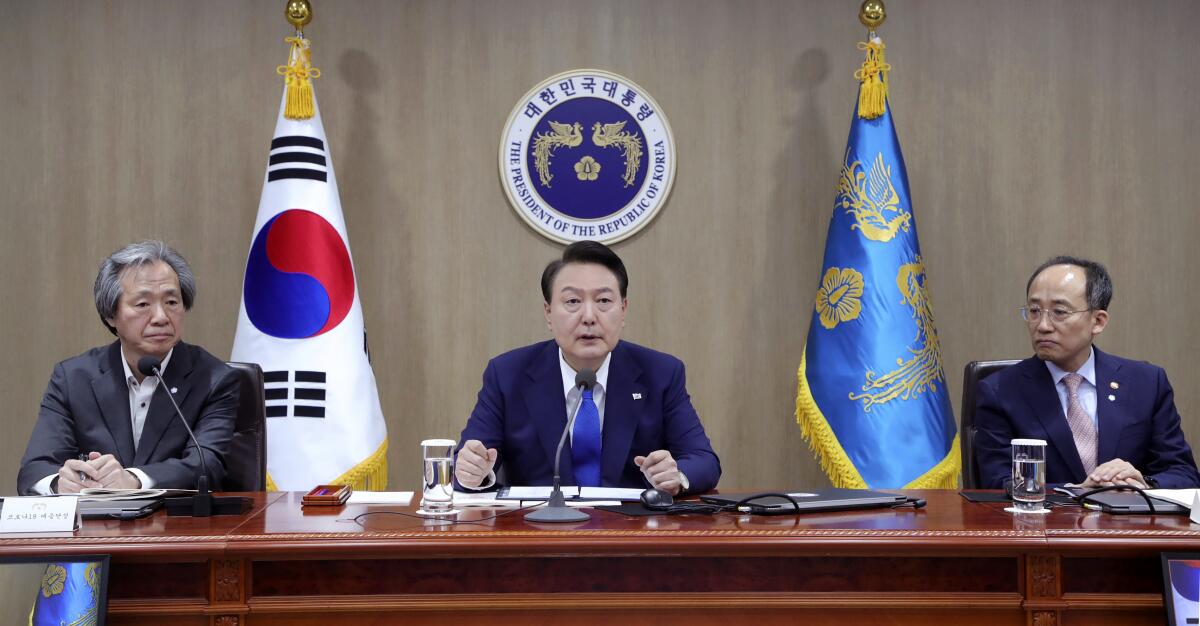
- Copy Link URL Copied!
South Korea will drop its COVID-19 quarantine requirements and end coronavirus testing recommendations for international arrivals starting next month after the World Health Organization declared the end of the global health emergency .
In lowering the coronavirus alert level from “critical” to just “alert” starting June 1, health authorities will also lift mask mandates in pharmacies and small clinics but will continue require mask-wearing in large hospitals, long-term care facilities and other medical venues with high infection risks.
The decision was announced during a meeting attended by President Yoon Suk-yeol, at which he thanked the country’s medical workers and said it was “delightful that people are getting their normal lives back after 3½ years.”
He said his government would take steps to improve the country’s capacity to deal with future pandemics, including providing stronger support for vaccine development and expanding international cooperation.
South Korea has been requiring seven-day quarantines for coronavirus carriers. While the mandate will be lifted starting June 1, health officials will continue to recommend that people isolate for five days if they test positive for the virus, the Korea Disease Control and Prevention Agency said. Travelers had been advised to take PCR tests within three days after arriving in the country, but that recommendation will also be lifted.
Youngmee Jee, the Korea Disease Control and Prevention Agency’s commissioner, downplayed worries that virus measures were being loosened too quickly, saying that the country’s COVID-19 situation was stabilizing, partially because of high vaccination rates and immunity gained through infections during previous waves of the virus .
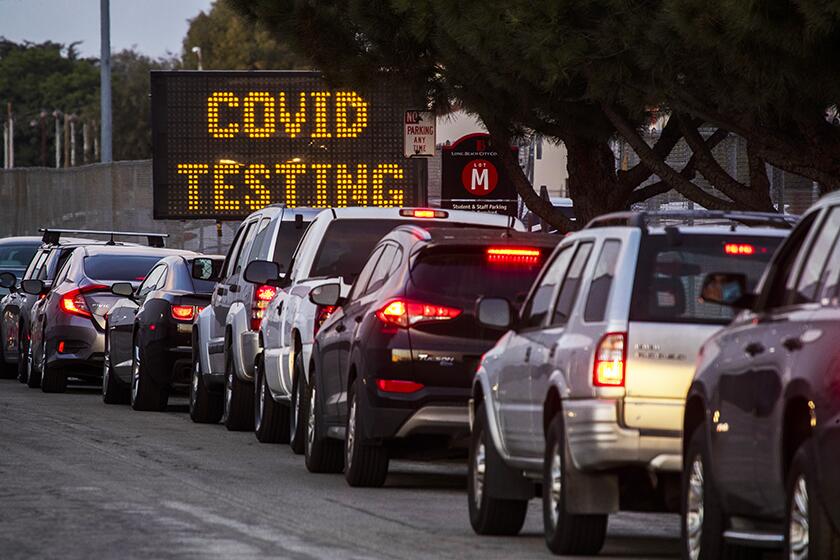
Editorial: The COVID-19 pandemic emergency is over, but virus is still here
It’s appropriate for the government to move out of the emergency response phase. But we must continue to be vigilant because the coronavirus that has killed millions over the last three years is still with us.
May 11, 2023
The fatality rate of COVID-19, after a steady decline, is now at a similar level with influenza, and there are enough medical resources to deal with a modest rise in infections, with about half of the country’s 700 hospital beds designated to treat serious cases currently vacant, Jee said.
She said officials would maintain preventive measures to protect vulnerable groups, including older people and people with medical conditions, and continue financial support to lower the costs of tests and hospitalizations for virus carriers.
“The risk of COVID-19 is not yet over, but considering the decline in cases, improved medical response capacities and high levels of immunity, we have reached a point where we need to step out of an international emergency state and transition toward a long-term management phase ,” Jee said during a briefing.
The announcement came as health workers reported 20,574 new COVID-19 cases in South Korea on Thursday, which represented a slight increase from last week’s level. Lee Sang-won, the Korea Disease Control and Prevention Agency’s chief of epidemiological investigations, said the pace of the country’s coronavirus infections has moderately increased in recent weeks because of the spread of XBB, a new Omicron variant. He said it was unlikely that the spread would develop into another huge wave of the virus.
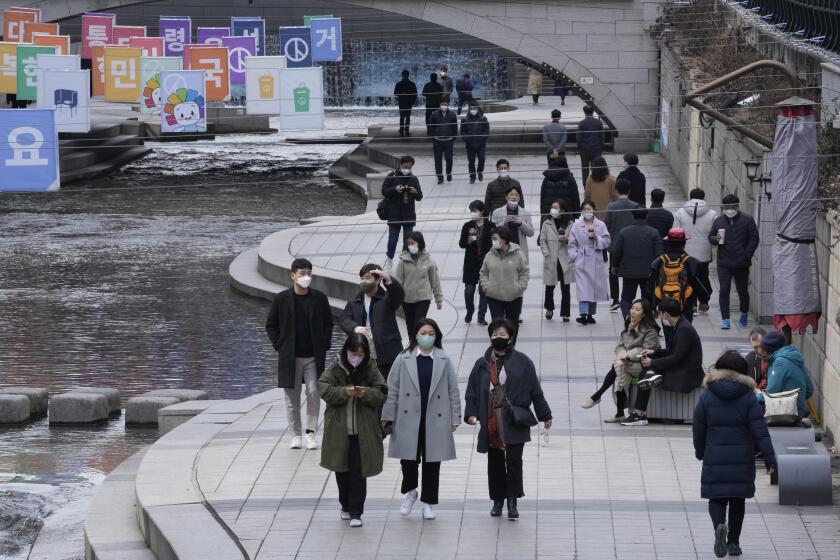
World & Nation
South Korea drops vaccination proof for indoor spaces despite Omicron surge
The elimination of proof of vaccination for entry to indoor spaces comes as South Korea sets a new one-day record for COVID-19 deaths.
Feb. 28, 2022
There are concerns that the lifting of the quarantine mandate will result in people showing up to work when sick , considering the country’s notoriously harsh work culture.
Lim Sook-young, another the Korea Disease Control and Prevention Agency official, said the government, for the time being, would continue to provide subsidies to COVID-19 patients in low-income brackets and to small companies when they offer paid leave to sick employees, so that infected people can be encouraged to isolate and recover.
She said government agencies were debating further plans to “institutionalize a culture of resting when sick,” including pushing employers to establish consistent guidelines over paid and sick leave and provide employees expanded options for working at home.
South Korea had maintained a stringent COVID-19 response based on aggressive testing, contact-tracing and quarantines during the earlier part of the pandemic, but has eased most of its virus controls since last year as the Omicron variant’s surge rendered those containment strategies irrelevant.
The WHO declared an end to the COVID-19 emergency last week, though Director-General Tedros Adhanom Ghebreyesus noted that the viral disease remained a global health threat.
More to Read
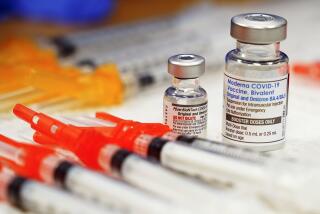
US to lift most federal COVID-19 vaccine mandates next week
May 1, 2023
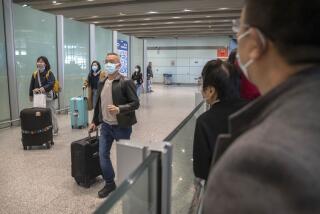
China to scrap PCR test requirement for inbound travelers starting Saturday
April 26, 2023
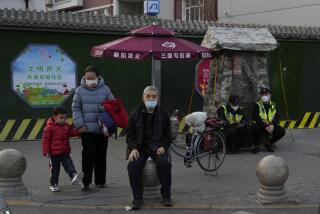
U.S. to relax COVID testing rules for travelers from China as early as Friday
March 8, 2023
Sign up for Essential California
The most important California stories and recommendations in your inbox every morning.
You may occasionally receive promotional content from the Los Angeles Times.
More From the Los Angeles Times
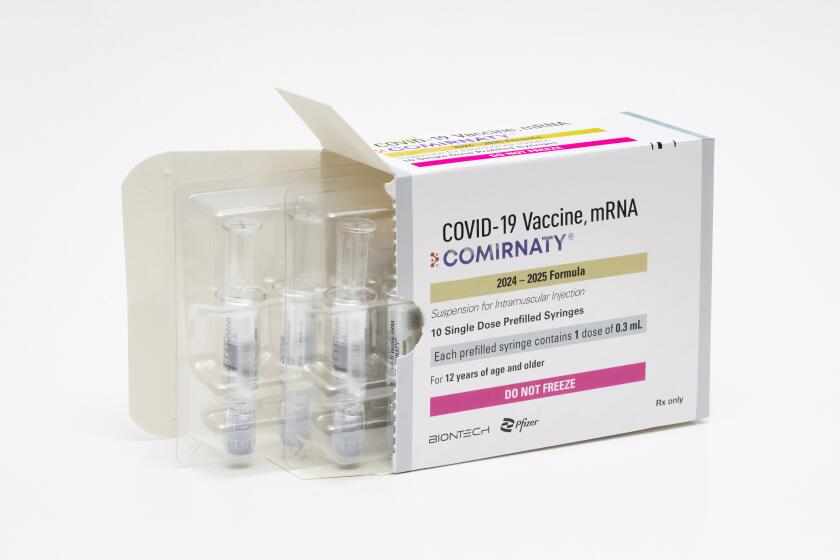
Science & Medicine
FDA approves updated COVID-19 vaccines; shots should be available in days
Aug. 22, 2024
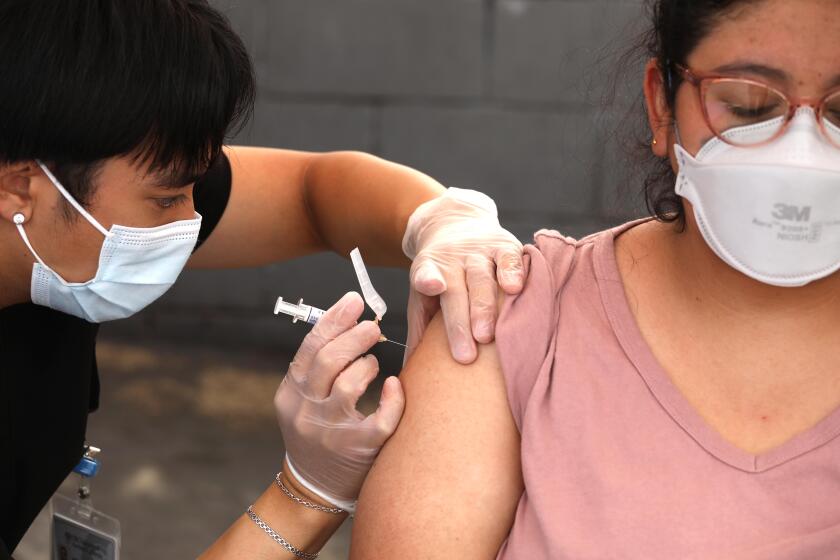
COVID and bird flu are rising. Here’s how to keep yourself safe
Aug. 20, 2024
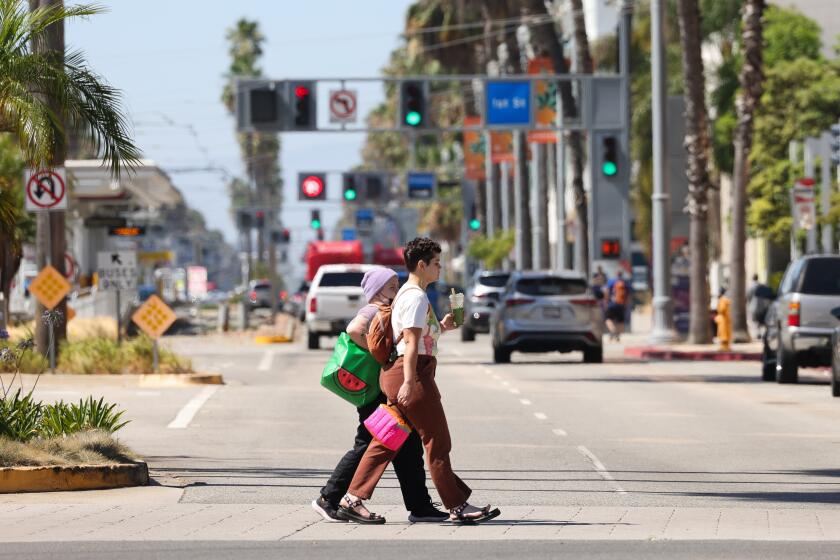
‘A much more infectious’ COVID variant fueling California’s relentless surge
Aug. 19, 2024
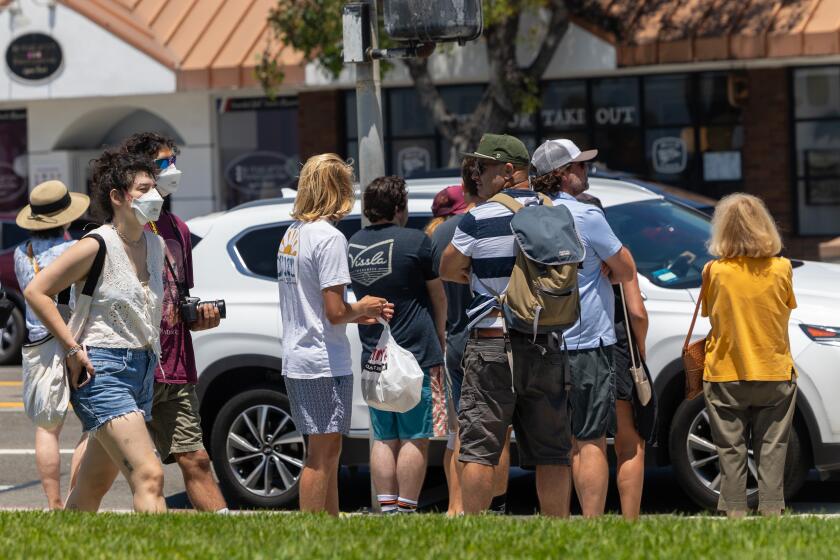
This is now California’s worst summer COVID wave in years. Here’s why
Aug. 12, 2024
Cookies on GOV.UK
We use some essential cookies to make this website work.
We’d like to set additional cookies to understand how you use GOV.UK, remember your settings and improve government services.
We also use cookies set by other sites to help us deliver content from their services.
You have accepted additional cookies. You can change your cookie settings at any time.
You have rejected additional cookies. You can change your cookie settings at any time.
South Korea
Warnings and insurance, before you travel.
No travel can be guaranteed safe. Read all the advice in this guide as well as support for British nationals abroad which includes:
- advice on preparing for travel abroad and reducing risks
- information for women, LGBT+ and disabled travellers
Travel insurance
If you choose to travel, research your destinations and get appropriate travel insurance . Insurance should cover your itinerary, planned activities and expenses in an emergency.
About FCDO travel advice
The Foreign, Commonwealth & Development Office ( FCDO ) provides advice about risks of travel to help you make informed decisions. Find out more about FCDO travel advice .
Follow and contact FCDO travel on Twitter , Facebook and Instagram . You can also sign up to get email notifications when this advice is updated.
Related content
Is this page useful.
- Yes this page is useful
- No this page is not useful
Help us improve GOV.UK
Don’t include personal or financial information like your National Insurance number or credit card details.
To help us improve GOV.UK, we’d like to know more about your visit today. Please fill in this survey (opens in a new tab) .
- Airport Transfers
- Attractions & Tours
- Flight + Hotel
- Destinations
- Trip.com Rewards
All you need to know before you go: South Korea entry requirements
Latest information of entry requirements
1. pre-departure negative pcr test certificate will no longer be required to enter korea from september 3, 2022, 2. all nationals entering korea will not be required to do a 7-day mandatory quarantine., 3. mandatory for entry: k-eta or valid visa, 4. q-code system, 5. after-entry covid test will not be required from october 1, what requirements do i need to travel to south korea, q: do i need to apply visa to enter south korea, q: what are the necessary documents for entering south korea, q: what are the entry regulations for those who have not been vaccinated, top 5 best instagram-worthy hotels in seoul, 😉read more:.
Show More
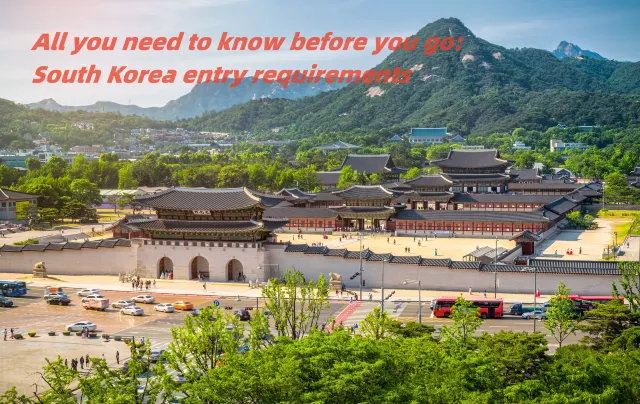
Visitors who already completed the COVID-19 vaccinations have been exempt from mandatory quarantine as of April 1 , according to South Korea’s Ministry of the Interior and Safety.
And the exemptions expanded to include overseas vaccinations that have not registered for vaccination status in Korea as well.
For international travelers, that is definitely good news! With beautiful mountains and oceans, colorful cities and nightscapes, dynamic culture and delicious K-food, South Korea is one of the best destinations for global travelers. Trip.com has offered you the latest entry requirements and essential travel information before your trip to South Korea!
Visitors are not required to provide a pre-departure COVID-19 test or to have a PCR test on arrival to enter South Korea. It's recommended you register your personal information in the Korean Q-code registration system before you travel to South Korea at the Q-code website.
Checklist for foreigners entering South Korea
- From September 3 2022 , pre-departure PCR (RAT) test and negative certificate will not be required to enter Korea, for all Koreans and Foreigners.
From April 2022, nationals of visa waiver countries or designated visa-free countries must obtain ETA (Electronic Travel Authorization) before entering The Republic of Korea.
For entry to Korea, all foreigners must have a K-ETA (for visa-free visitors) or a valid visa (for visa-required visitors) to enter Korea. The K-ETA process will take up to 72 hours and the result will be sent to your email address directly. Visitors need to have the printed hard copy ready.
Irish nationals are eligible to enter and stay in Korea for up to 90 days with a K-ETA for tourist purpose.
Using the Q-code system is recommended for all people entering South Korea to upload their health condition and after entry COVID-19 test results.
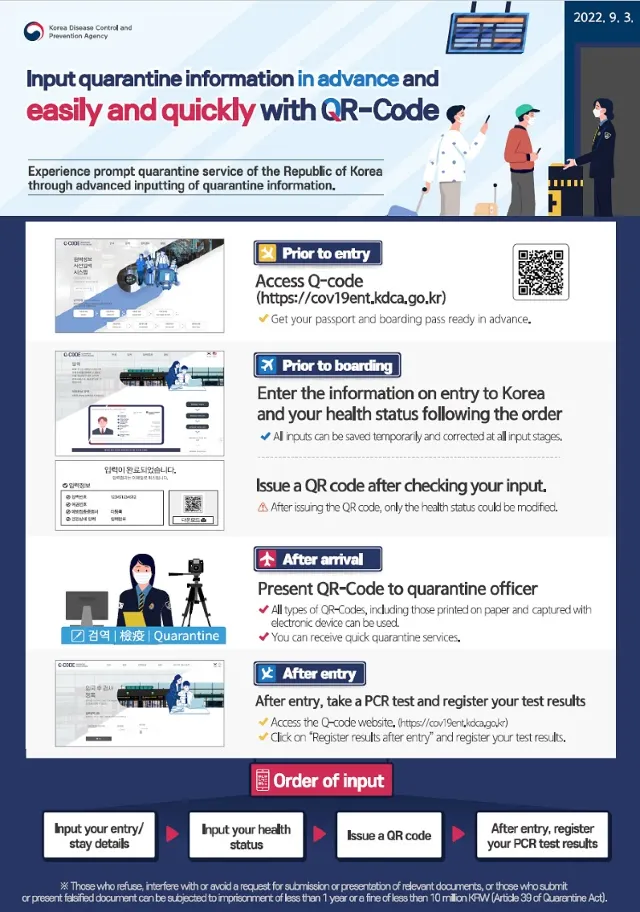
Day 1 PCR test will not be mandatory from people entering South Korea from October 1. Korean and foreigners who wish to get a COVID test, may visit the Public Health center of their resident area to get a test free of charge.
Here is a helpful checklist of South Korea travel documents that you will need to present before you enter the country:
- A valid Q-Code. Foreign tourists are required to register their vaccination history through the Quarantine COVID-19 Defence (Q-Code) System before your trip.
- A valid visa (for visa-required visitors) or K-ETA (for visa-free visitors). Since the visa-free and visa-waiver program is temporarily suspended, visa-free passport holders must check for their eligibility and apply for a K-ETA in advance to be able to enter South Korea.
Frequently asked questions for travel to South Korea
Passengers can enter the country without a visa as long as they apply for an electronic travel permit K-ETA 72 hours before the departure! At present, South Korea has also announced an indefinite extension of the visa-free entry measures, so that any passenger can easily enter South Korea.
From September 3 2022, pre-departure PCR (RAT) test and negative certificate will not be required to enter Korea, for all Koreans and Foreigners.
Tips: Remember to register your personal information in the Korean Q-code registration system before you travel to South Korea at the Q-code website.
From June 8, no matter whether you have been vaccinated or not, you no longer need to be quarantined when entering South Korea!
Top 5 Best Hotels for Gourmet & Shopping in Seoul
An ultimate guide to Seoul: Top 10 red-leaf scenic spots in fall

Trending Travelogues
Popular attractions, popular ranked lists, popular destinations, recommended attractions at popular destinations.
- Customer Support
- Service Guarantee
- More Service Info

- About Trip.com
- Terms & Conditions
- Privacy and Cookies
- About Trip.com Group
Other Services
- Investor Relations
- Affiliate Program
- List Your Property
- Become a Supplier

The Straits Times
- International
- Print Edition
- news with benefits
- SPH Rewards
- STClassifieds
- Berita Harian
- Hardwarezone
- Shin Min Daily News
- Tamil Murasu
- The Business Times
- The New Paper
- Lianhe Zaobao
- Advertise with us
Covid-19 levels in South Korea’s wastewater surge amid summer wave
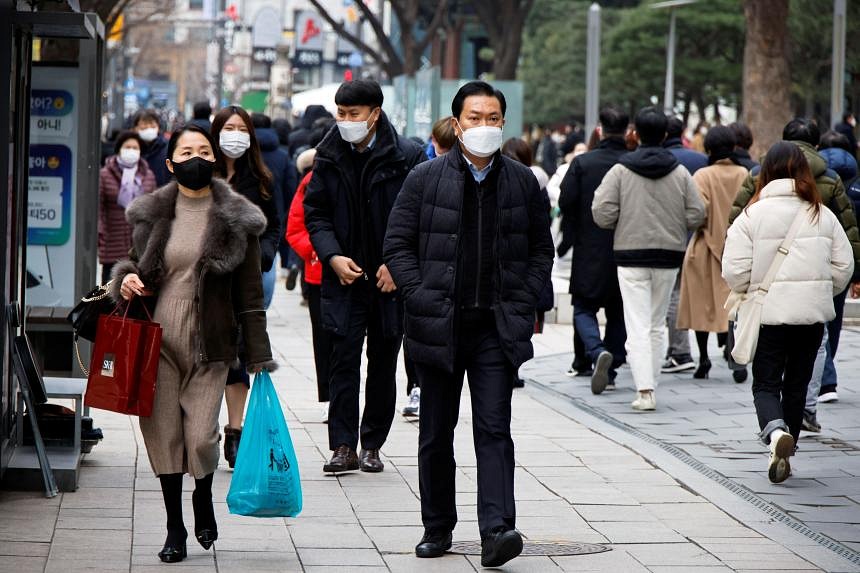
SEOUL - South Korea is seeing a pronounced rise in the levels of Covid-19 in wastewater as the number of confirmed cases continues to swell throughout August and is expected to peak in late August, said health authorities on Aug 18.
The surge in wastewater virus concentrations – one of the key gauges to track and estimate community spread – has more than quadrupled from late April to early August.
Amid the ongoing summer Covid-19 wave, the average concentration of the virus at local sewage plants stood at 47,640 copies per millilitre for the second week of August, data from the Korea Wastewater Surveillance programme, run by the Korea Disease Control and Prevention Agency (KDCA), showed.
The corresponding figure for the fourth week of April was below the 10,000 mark per millilitre, but reached 13,336 in the fourth week of July, and 24,602 in the first week of August, according to KDCA.
The concentrations are based on samples taken from 84 sewage treatment plants across the country to estimate how many Covid-19 cases are occurring in different areas, KDCA explained.
Health authorities have been using the water waste surveillance method since April 2023 to assess and trace the number of Covid-19 patients within communities.
The latest data showed that the virus levels in 14 regions – except North Gyeongsang Province, Jeju and North Jeolla Province – increased more than in the previous week.
In line with the surge in virus levels in wastewater, the country is also seeing an increase in the number of patients hospitalised with Covid-19, KDCA noted.
The number of newly admitted patients for the second week of August was 1,359 – the highest level in 2024 and a twofold increase from 477 in the fourth week of July. The figure also accounted for approximately 66 per cent of newly admitted patients, according to KDCA.
With the summer Covid-19 wave showing little signs of slowing, officials said they plan to secure sufficient treatments for 260,000 Covid-19 patients and to start supplying them this week.
Health authorities added that they will have treatments available nationwide by the end of August and will begin administering vaccines effective against the Covid-19 variant KP.3, which made up nearly 45.5 per cent of the cases in the country in July.
Health Minister Cho Kyoo-hong said during a parliamentary hearing at the National Assembly on Aug 16 that the government was “carefully monitoring” the summer resurgence and plans to secure more beds at public medical institutions to cope with the increase in cases.
KDCA, however, noted that the current resurgence has not led to a significant increase in the rate of critically ill patients or fatalities compared with previous Covid-19 waves.
The agency also recommended wearing facial masks when visiting crowded spaces, ventilation, handwashing at regular intervals, and covering the mouth and nose when coughing or sneezing to prevent the spread of the virus. THE KOREA HERALD/ ASIA NEWS NETWORK
Join ST's Telegram channel and get the latest breaking news delivered to you.
- South Korea
Read 3 articles and stand to win rewards
Spin the wheel now
North Korea to begin admitting foreign tourists (again)
For the first time in five years, the isolated dictatorship is inviting large groups to visit the city of Samjiyon — and possibly beyond
- Newsletter sign up Newsletter
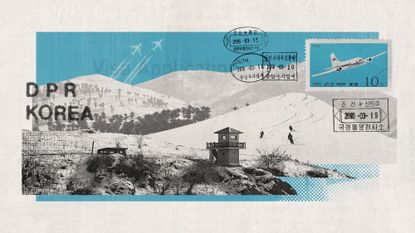
Disney World? A Viking cruise down the Danube? A drive from coast to coast with stops at every roadside attraction? When getting out of the house and going on vacation, the options are virtually limitless. Virtually, but not absolutely — particularly for adventurous travelers interested in visiting one of the most isolated countries on Earth, North Korea. The country closed its borders entirely five years ago during the onset of the Covid-19 pandemic.
That may be about to change.
For the first time in half a decade, the avowedly communist enclave is preparing to welcome tourist groups back into parts of the country as early as this coming December, according to China-based tour operators Koryo Tours. "We have received confirmation from our local partner that tourism to Samjiyon and potentially the rest of the country will officially resume in December 2024," the group said in a press release . Described as "the most famous region in North Korea in the winter for tourism," Samjiyon is "the most significant and sacred place" for the entire Korean peninsula, Koryo said. The agency predicts it will have a "finalized itinerary for the area and more information as well as dates and prices in the coming days and weeks."
Subscribe to The Week
Escape your echo chamber. Get the facts behind the news, plus analysis from multiple perspectives.

Sign up for The Week's Free Newsletters
From our morning news briefing to a weekly Good News Newsletter, get the best of The Week delivered directly to your inbox.
As the infamously secretive and insular North Korea begins once again accepting foreigners into its midst, what does this mean for the region — and the world?
'Not a full reopening'
The decision to make Samjiyon the first spot open to foreign tourism is "significant" Semafor said. The tourism-associated area has been a popular destination for Chinese visitors coming across the two countries' shared border in the past, helping North Korea generate "vital revenue amid international sanctions."
North Korea has dubbed Samjiyon its "'model of a highly-civilized mountain city' with new apartments, hotels, a ski resort and commercial, cultural and medical facilities," Reuters said. Earlier this summer, North Korean leader Kim Jong Un reprimanded a group of senior officials overseeing construction in the region for their "irresponsibility," declaring the city would become an "oasis of our people and the world people and make tourism a major driving force of regional development" while he personally inspected the project, The Korea Times said.
This winter's planned tourism opportunity is "not a full reopening of the country back to what it was, or more than what it was," Koryo Tours' Simon Cockerell cautioned during a podcast taping at The Independent . "It's a specific opening of one, relatively obscure-up-till-now area."
Moreover, this coming December will not be the first opportunity for tour groups to enter the country since the Covid lockdown. Last year, "small tour groups from Russia" were granted entry to North Korea "amid Kim's deepening partnership with Russian strongman Vladimir Putin," CNN said. That exchange is more "associated with the North Korean support for the Russian war effort," said Cockerell. Just this month, Russia sent North Korea more than 400 goats as part of a "wide-ranging deal covering sectors including education, agriculture and tourism," Politico said.
'We can only have peace when this travel ban is lifted'
For as much as North Korea's impending tourism opening may seem like the sort of opportunity an adventurous traveler should jump on, do not expect to be able to hop on a flight to Pyongyang just yet. It will likely be "only Russian tourists and possibly Chinese visiting in any real numbers at first" if North Korea does not offer "direct Samjiyon flights to a neutral connection country like Mongolia," Chad O'Carroll, CEO of US-based analysis firm Korea Risk Group, said at BBC . Even if such countries do, American passport holders are banned from visiting the communist country: The U.S. State Department announced the renewal of its prohibition on travel "to, in or through the Democratic People's Republic of Korea" earlier this month.
"We can only have peace when this travel ban is lifted," Cathi Choi, co-director of Women Cross DMZ, said at The Hill . "In addition to divided family members, everyday people in North Korea, South Korea and the United States will all suffer from these consequences."
Allowing tourism "can only bring positives," said Cockerell. "The cure for isolation is not more isolation."
Sign up for Today's Best Articles in your inbox
A free daily email with the biggest news stories of the day – and the best features from TheWeek.com
Rafi Schwartz has worked as a politics writer at The Week since 2022, where he covers elections, Congress and the White House. He was previously a contributing writer with Mic focusing largely on politics, a senior writer with Splinter News, a staff writer for Fusion's news lab, and the managing editor of Heeb Magazine, a Jewish life and culture publication. Rafi's work has appeared in Rolling Stone, GOOD and The Forward, among others.
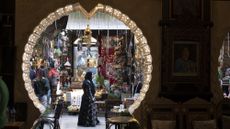
The Week Recommends These lively markets offer shopping with a side of culture
By Catherine Garcia, The Week US Published 22 August 24
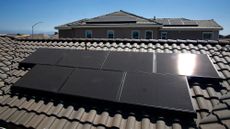
In Depth One-star reviews for solar companies have increased over 1,000% since 2018
By Justin Klawans, The Week US Published 22 August 24

The Week's daily crossword
By The Week Staff Published 22 August 24

Instant Opinion Opinion, comment and editorials of the day
By Justin Klawans, The Week US Published 21 August 24

Today's Big Question She's been slow to release concrete policy platforms, but there are plenty of hints as to what a potential Harris administration would look like
By Rafi Schwartz, The Week US Published 21 August 24

In the Spotlight A recent study shows that celebrities may have more of a tangible impact on elections than you realize
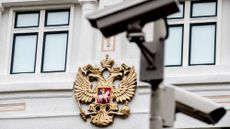
By Justin Klawans, The Week US Published 20 August 24

Under the Radar Reports indicate that China's shipbuilding capacity is over 200 times that of the US

By Justin Klawans, The Week US Published 19 August 24
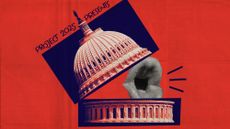
In Depth The project outlines a series of moves to transform the executive branch of the government
By Justin Klawans, The Week US Published 16 August 24
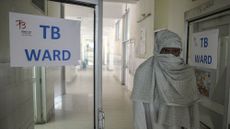
- Contact Future's experts
- Terms and Conditions
- Privacy Policy
- Cookie Policy
- Advertise With Us
The Week is part of Future plc, an international media group and leading digital publisher. Visit our corporate site . © Future US, Inc. Full 7th Floor, 130 West 42nd Street, New York, NY 10036.
We’re sorry, this site is currently experiencing technical difficulties. Please try again in a few moments. Exception: request blocked

IMAGES
COMMENTS
KOREA TRAVEL SAFETY GUIDELINES. 03/30/2023. 29.8K. 0. 1. Come enjoy Korea with its beautiful mountains and oceans, colorful cities and nightscapes, dynamic culture, and delicious K-Food! We are doing our best to provide a safe travel environment for all. Please check all the essential travel information before your trip to Korea for maximal ...
You should check the Korea Disease Control and Prevention Agency directly for updates. Although COVID-19 testing is not required for entry into Korea, a non-comprehensive list of some COVID-19 testing facilities in Korea can be found on the Embassy website should travelers seek or require testing for travel to other countries.
South Korea entry details and exceptions. Korea has resumed their visa-free travel. From 1 April 2022, travelers do not need a visa to enter South Korea but must apply for a K-ETA (Korean Electronic Travel Authorization) at least 72 hours prior to travel for the issuance of the boarding pass. Health and safety requirements are subject to change ...
COVID-19: All eligible travelers should be up to date with their COVID-19 vaccines. Please see Your COVID-19 Vaccination for more information. ... Use the Healthy Travel Packing List for South Korea for a list of health-related items to consider packing for your trip. Talk to your doctor about which items are most important for you.
TBS eFM Broadcasts Special COVID-19 Live Updates Program for Foreigners. As the number of confirmed cases of coronavirus disease 2019 (COVID-19) has exceeded 5,000 in South Korea, TBS eFM will be broadcasting a special program titled COVID-19 Live Updates for foreigners starting March 4, 2020 from 9 to 10 AM every day.
Travel Advisory. July 24, 2023. South Korea - Level 1: Exercise Normal Precautions. Reissued with obsolete COVID-19 page links removed. Exercise normal precautions in South Korea. Read the country information page for additional information on travel to South Korea. If you decide to travel to South Korea: Enroll in the Smart Traveler Enrollment ...
You may travel to Korea as long as your passport remains valid throughout your stay in Korea. (3) ... No COVID-19 testing required. List. Prev Independence Movement Day Closure (1st March) Next 2024 Beautiful Mind Music Academy Concert (4/20, Sat)
The South Korea entry restrictions determine who can enter the country and under what conditions. Normally, foreigners must meet the South Korea visa requirements for their nationality and obtain the relevant permit before traveling.. Additionally, several South Korea COVID restrictions are now in place to prevent the spread of coronavirus.. As a result, the Republic of Korea has temporarily ...
returning to Korea. This applies to both Korean nationals and foreign nationals, and the burden of proof is on the traveling individual. Korean nationals entering Korea within 10 to 40 days of the date when they are tested positive* or started isolation for COVID-19 * A DNA amplification-based test such as a PCR test or supervised RAT is accepted
Location: Republic of Korea. Event: Coronavirus Outbreak: Travel Restrictions and Safety Measures. The U.S. Centers for Disease Control and Prevention (CDC) is closely monitoring the novel coronavirus that was first detected in Wuhan, China and subsequently declared a Public Health Emergency of International Concern by the World Health ...
February 15, 2022. Location: Republic of Korea. Event: The U.S. Centers for Disease Control (CDC) and the Department of State have raised their travel advisories to Level 4 for the Republic of Korea due to COVID-19. For Level 4 destinations, the CDC recommends that travelers avoid travel to the destination. The State Department now recommends that you do not travel to the Republic of Korea.
South Korea is raising its Covid-19 alert levels, as it battles a rise in infections. Gatherings of more than 50 will be banned in the capital Seoul and surrounding areas from Tuesday, while gyms ...
This could happen even if you travel to South Korea on your Australian passport. Get advice through a South Korean embassy or consulate before travelling. Full travel advice: ... COVID-19 ; If you test positive for COVID-19 while in South Korea, you may need to follow local isolation guidelines. Use normal hygiene precautions, including:
Reissued with obsolete COVID-19 page links removed. Exercise normal precautions in South Korea. Read the country information page for additional information on travel to South Korea. If you decide to travel to South Korea: Enroll in the Smart Traveler Enrollment Program (STEP) to receive Alerts and make it easier to locate you in an emergency.
Embassy of Republic of Korea (Malaysia) Incheon Airport. Korea Travel Safety Guidelines. Ensure that you have a valid: K-ETA (or) Visa. Prior to your travels to South Korea, travellers must ensure they have a valid K-ETA or Visa. If the traveller is a national of K-ETA countries (including Malaysia), and the purpose of their trip to Korea is ...
FCDO travel advice for South Korea. Includes safety and security, insurance, entry requirements and legal differences. ... COVID-19 rules. There are no COVID-19 testing or vaccination requirements ...
*Canadians are exempt from the Korea Electronic Travel Authority (K-ETA) requirement to visit South Korea until December 31, 2024. You can't change your visa status once you're in South Korea. ... COVID-19. Coronavirus disease (COVID-19) is an infectious viral disease. It can spread from person to person by direct contact and through droplets ...
The announcement came as health workers reported 20,574 new COVID-19 cases in South Korea on Thursday, which represented a slight increase from last week's level.
The Foreign, Commonwealth & Development Office ( FCDO) provides advice about risks of travel to help you make informed decisions. Find out more about FCDO travel advice. Follow and contact FCDO ...
Trip.com provides tourists with Visitors who already completed the COVID-19 vaccinations have been exempt from mandatory quarantine as of April 1, according to South Korea's Ministry of the Interior and Safety. And the exemptions expanded to include overseas vaccinations that have not registered for vaccination status in Korea as well. For international travelers, that is definitely good news!
South Korea will from Saturday no longer require travellers to the country to test for COVID-19 before departure, although they will still need to take a PCR test within 24 hours of arrival.
Amid the ongoing summer Covid-19 wave, the average concentration of the virus at local sewage plants stood at 47,640 copies per millilitre for the second week of August, data from the Korea ...
North Korea has dubbed Samjiyon its "'model of a highly-civilized mountain city' with new apartments, hotels, a ski resort and commercial, cultural and medical facilities," Reuters said.
Travel Advisory Level 1: ... Registration will allow U.S. citizens (1) to receive booster shots in Korea when eligible and (2) to visit restaurants, cafes, gyms, and other multiuse facilities requiring proof of vaccination. ... If you are a short-term visitor, you will receive a Confirmation of COVID-19 Vaccination document.
Reissued with obsolete COVID-19 page links removed. Do not travel to North Korea due to the continuing serious risk of arrest and long-term detention of U.S. nationals.Exercise increased caution to North Korea due to the critical threat of wrongful detention.. All U.S. passports are invalid for travel to, in, or through the DPRK unless specially validated for such travel under the authority of ...
North Korea is to reopen limited international tourism by the end of 2024, nearly five years after it completely sealed the country's borders due to the COVID-19 pandemic.
Most travelers will never go to North Korea. But by traveling to Seoul and meeting the defectors who have built new lives in the South Korean capital, it's possible to learn about the "hermit ...